159 – The 13-Year Battle for Olympic Bronze and the Impacts of Doping on Clean Athletes – Shannon Rowbury
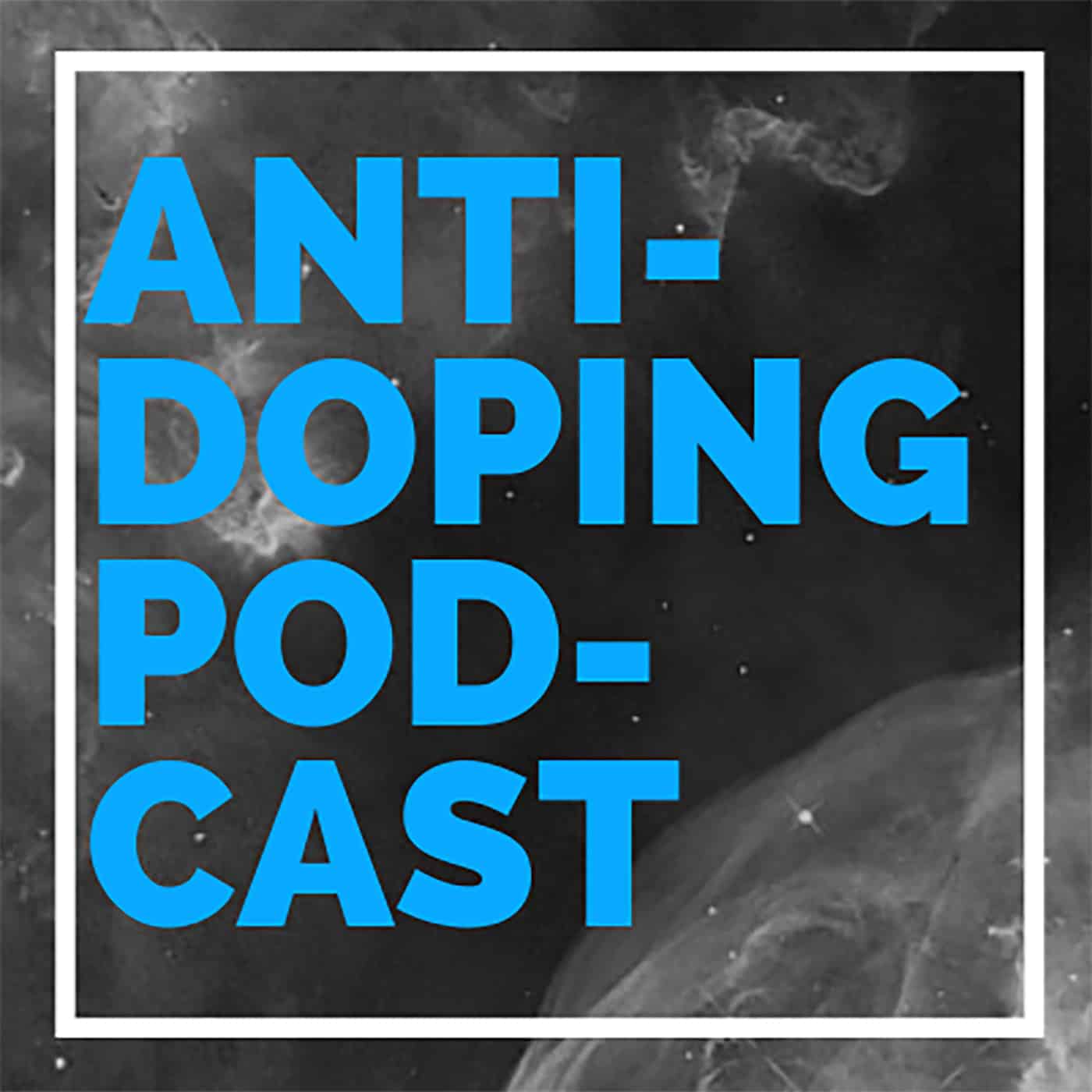
Shannon Rowbury is an accomplished elite U.S. track athlete and three-time Olympian. She is an Olympic bronze medalist, two-time World bronze medalist, World Record Holder in the distance medley relay, former American record holder in the 1,500 meter, 2 mile, and 5,000 meter races, and she has been ranked among the top ten female track athletes in the world for a decade. In addition, Shannon is a Managing Partner at West Strategy Group and co-founder and President of Imagining More, a non-profit organization that promotes arts and athletics for youth. She is also an Emmy-Award winning broadcaster, she’s been an in-stadium announcer, and Track & Field analyst. In this episode, Shannon discusses her career, her commitment to clean sport, and her experiences surrounding the 2012 Olympic Games in London. After crossing the finish line in sixth place in that race, Shannon has now officially been recognized as the bronze medalist after multiple competitors were disqualified for doping.
158 – Leading Efforts to Advance Public Health, Drug Control Policy, and Drug Discovery – Rahul Gupta, MD

Rahul Gupta, MD, MPH, MBA, FACP, is a physician, President of GATC Health Corp, and the former Director of the U.S. Office of National Drug Control Policy (ONDCP). He was the first medical doctor to lead ONDCP, and he served as the Director from November 2021 – January 2025. Through his work, particularly at ONDCP, Dr. Gupta has made important contributions to protecting public health, which is an important component of the PCC’s mission. In this interview, he discussed drug control policy in the U.S., positive outcomes from the initiatives he has led, his role in safeguarding clean sport, his experience as keynote speaker at our recent PCC Conference, and his current innovative endeavors in drug discovery and healthcare.
157 – Protecting Athletes and Brands with the TruShield Certification Program – Lori Bestervelt, PhD

Dr. Lori Bestervelt is Senior Vice President of Certification Services at TruShield Certified and a member of the PCC’s Scientific Advisory Board. She was previously Chief Science Officer at NSF International for 22 years, and she has over 20 years of experience in sport certification programs. Dr. Bestervelt discussed the importance of banned substance certification, the gap in the market that TruShield Certified was created to address, the kinds of products they test and certify, how the certification process works, collaborations with other stakeholders in the anti-doping community, and more.
156 – Keeping Athletes Safe with the Rise of Online Pharmacies – John Hertig, PharmD

John Hertig, PharmD, MS, CPPS, FASHP, is Founder of Hertig Healthcare Advising and former faculty in the Pharmacy Practice Department in the Butler University College of Pharmacy and Health Sciences. He is also Past-President and a current Board of Directors member of the Alliance for Safe Online Pharmacies and is a Member of the United States Food and Drug Administration Drug Safety and Risk Management Advisory Committee. In this episode, he discusses his career, the online pharmacy landscape, the challenges and risks associated with illegal online pharmacies, how athletes and others can help keep themselves safe when accessing medications online, and more.
155 – Examining How Extracellular Vesicles Affect Arterial Function – Kevin Murray, PhD
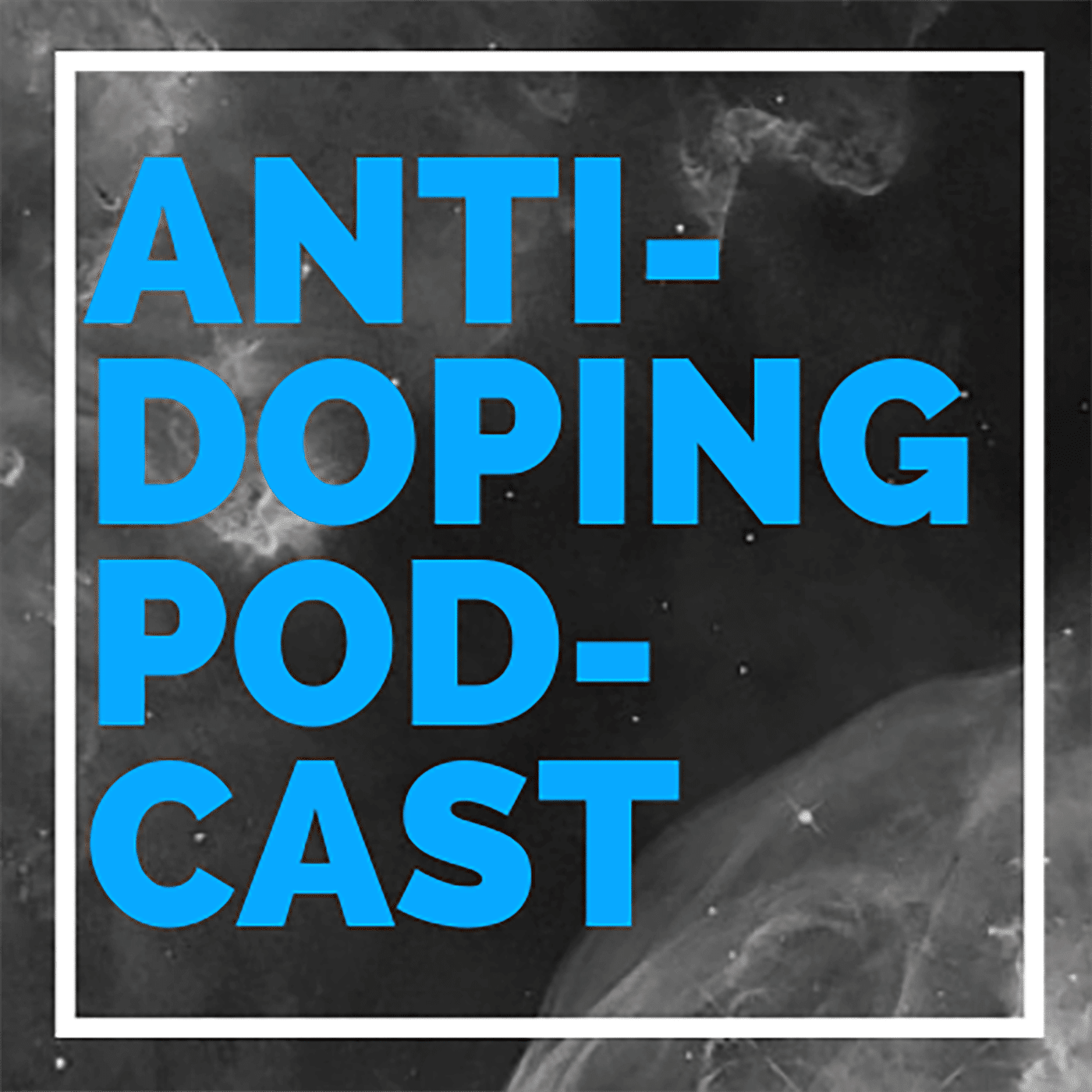
Dr. Kevin Murray is a Postdoctoral Associate in the Integrative Physiology of Aging Lab at the University of Colorado Boulder. He is the recipient of this year’s PCC-sponsored Anti-Doping Postdoctoral Award in partnership with the American Physiological Society (APS). In this episode, we discuss his career path and his research, particularly focusing on his recent work studying the role extracellular vesicles may play in modulating arterial function. This research is critical for understanding the potential performance-enhancing effects of emerging extracellular vesicle therapies.
154 – Leading Anti-Doping Investigations and Leveraging Intelligence to Support Clean Sport – Dan Burke
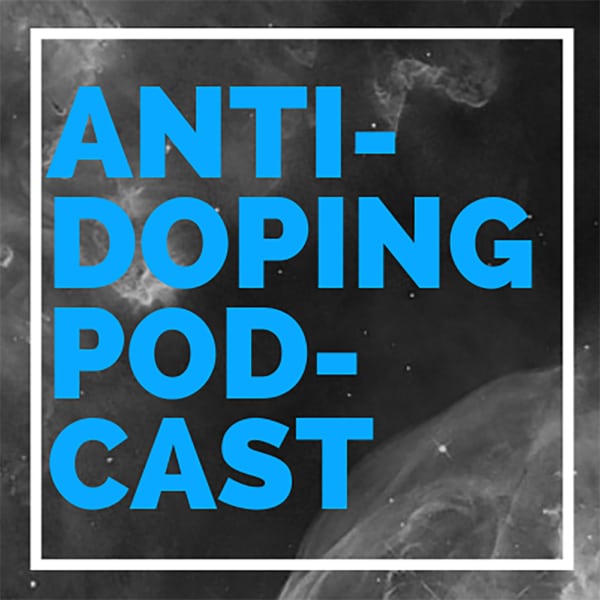
Dan Burke is the Intelligence and Investigations Director at the U.S. Anti-Doping Agency (USADA). In this episode, he describes USADA’s approach, tactics, and tools, for anti-doping investigations, including work in the area of cybercrime and online investigations. He also shares insights and experiences from his nearly three decades working in U.S. federal law enforcement, including his prior role as Division Chief at the U.S. Food and Drug Administration’s Office of Criminal Investigations, where he focused on the manufacturing of counterfeit pharmaceuticals, designer steroids, and tainted dietary supplements.
153 – Supporting Clean Sport Through Research and Routine Work at IDAS – Dresden – Sven Voss, PhD

Dr. Sven Voss is Director of the Institute of Doping Analysis and Sports Biochemistry (IDAS) – Dresden, a World Anti-Doping Agency (WADA)-accredited doping control laboratory in Germany. In this interview, he described his career path and his experiences working at multiple anti-doping labs around the world. In particular, he provided insights on IDAS – Dresden, including its history, their routine anti-doping work, and ongoing research projects on erythropoietin (EPO), blood doping, and other areas.
152 – Automation and Optimization in Anti-Doping Laboratories – Vinod Nair, PhD

Dr. Vinod Nair is Associate Laboratory Director of the WADA-Accredited Sports Medicine and Research Testing Laboratory (SMRTL). In this episode, Vinod covers how anti-doping labs strive to provide efficient and cost-effective services while maintaining the rigor and quality standards required in the industry. He explains how SMRTL incorporates automation into their lab’s work and shares his thoughts on the future of automation in anti-doping laboratories. We also discussed recent research that he and colleagues published examining minimum reporting limits to determine in-competition use of stimulants.
151 – Detecting and Quantifying Peptide Doping Agents and Developing Smart Samplers – Trine Halvorsen, PhD

Dr. Trine Grønhaug Halvorsen is Professor in the Section for Pharmaceutical Chemistry within the Department of Pharmacy at the University of Oslo in Norway. In this episode, she talks about her research on dried blood spot sampling, detecting peptide doping agents in anti-doping samples, and development of smart samplers, which incorporate the initial sample preparation steps into the collection device.
150 – Examining the Impacts of Administration Route on Steroid Metabolism and Detectability – Sophia Krombholz, PhD

Dr. Sophia Krombholz is a PCC Fellow and a Research Scientist and Research Associate at the Manfred Donike Institute for Doping Analysis in Cologne, Germany. In this episode, Sophia discusses her career path, her PCC-funded fellowship project, and other exciting anti-doping research. Dr. Krombholz’s fellowship project is investigating the metabolism of anabolic steroids administered through alternative routes (transdermally or buccally) and has yielded interesting results that may help inform the interpretation of findings from anti-doping tests.
149 – Developing New Biomarkers to Detect Doping and Enhance the Athlete Biological Passport – Olivier Salamin, PhD

Dr. Olivier Salamin is the Operational Manager of the Lausanne Athlete Passport Management Unit (APMU) within the Swiss Laboratory for Doping Analyses at the Lausanne University Hospital (Centre Hospitalier Universitaire vaudois/CHUV). In this episode, he discussed his career and research on the discovery and validation of biomarkers to detect prohibited substances and methods, particularly related to the Athlete Biological Passport (ABP). He also gives us an inside look at the history and operations of the Lausanne APMU.
148 – Updates on Detecting Growth Hormone Abuse from the PCC’s Collagen Turnover Working Group – Andy Hoofnagle, MD, PhD
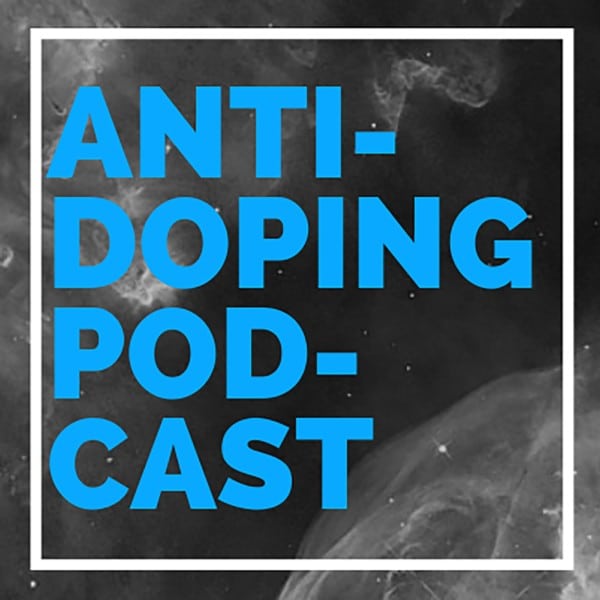
Dr. Andy Hoofnagle is a researcher, professor, board certified pathologist, and laboratory director at the University of Washington. He is Head of the Division of Chemistry, Director of Chemistry at the UW Medical Center – Montlake, Director of Clinical Mass Spectrometry, and Director of the Nutrition Obesity Research Center’s Analytic Core at the University of Washington. He is also Chair of the PCC’s Collagen Turnover Working Group. In this episode, he discusses his research and recent advances in the ability to detect growth hormone administration using biomarkers of collagen turnover. We also discussed Dr. Hoofnagle’s role as a mentor for PCC Research Fellow Dr. Huu Hien Huynh and his experience as a presenter at our 2025 PCC Conference.
147 – Examining the metabolism and improving the detection of performance-enhancing substances – Maria Kristina Parr, PhD

Dr. Maria Kristina Parr is a Professor in Pharmaceutical Chemistry at Freie Universität Berlin. In this interview, she discusses her research that has focused on understanding the metabolism of steroids and other compounds and improving our ability to detect these substances and their metabolites for anti-doping and other purposes. We covered the results from several of her latest papers, including work examining food sources of ecdysterone, metabolism of topically administered steroids in skin cells, metabolism of endogenous versus exogenous steroids, and more.
146 – The International Paralympic Committee’s Commitment to Clean Sport – Jude Ellis

This episode features Jude Ellis, Head of Anti-Doping at the International Paralympic Committee (IPC). She discusses her background, the history of the IPC, and the IPC’s Anti-Doping team’s responsibilities for the Paralympic Games and beyond. Our conversation also gives a brief overview of the IPC Code and covers major accomplishments related to recent anti-doping testing surrounding the 2024 Paralympic Games in Paris.
145 – Investigating Anti-Doping and Moral Behavior in Sport and Exercise – Ian Boardley, PhD

Professor Ian Boardley is the Head of Impact & Engagement, Professor in Sport and Exercise Psychology, and Chair of the Health and Safety Committee for the College of Life and Environmental Sciences in the School of Sport, Exercise and Rehabilitation Sciences at the University of Birmingham in the UK. In this episode, he discusses his research on the psychosocial processes governing moral behavior in sport and physical activity. In particular, he covers some of the important research studies he has conducted on moral disengagement in sport, anabolic-androgenic steroid dependence and craving, anti-doping education, and other areas.
144 – Anti-Doping Excellence at the Helsinki Doping Control Laboratory – Tina Suominen, PhD

Dr. Tina Suominen is Director of the Helsinki Doping Control Laboratory within the Forensic Chemistry Unit at the Finnish Institute for Health and Welfare (THL) in Helsinki, Finland. In this episode, she discusses her role as Director of a WADA-Accredited Anti-Doping Laboratory, the lab’s history (including a major move and re-accreditation), and the latest research and methods development projects she and her colleagues have been working on in the lab.
143 – Exploring Potential Contamination of Meat with Anabolic Agents and Other Prohibited Substances – Brad Johnson, PhD
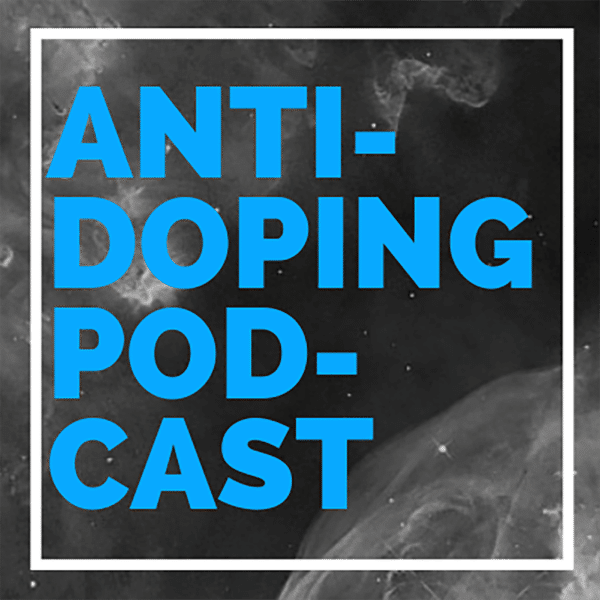
Dr. Brad Johnson is the Gordon W. Davis Regent’s Chair in Meat Science and Muscle Biology and Professor in the Department of Animal and Food Sciences in the College of Agricultural Sciences and Natural Resources at Texas Tech University. In this episode, Brad discusses his research on muscle growth and development in meat animals, as well as potential contamination of meat with growth promoters that are relevant for anti-doping. In particular, he shares findings from a recent study, funded by the Partnership for Clean Competition, that examined residues of prohibited anabolic agents in the meat supply chain.
142 – UNESCO’s Role in Protecting Athletes’ Health and Preventing Doping in Sport – Ekain Zubizarreta, PhD

Dr. Ekain Zubizarreta is a Lecturer at the University of the Basque Country in Spain, and he is also a member of the research laboratory ISP at Paris Nanterre University in France, which hosts the UNESCO Chair in “Doping Studies and Analysis of Anti-Doping Policies”. In this episode, Ekain talks about the history and significance of UNESCO’s role in anti-doping, The International Convention Against Doping in Sport, and research projects he and his colleagues have worked on in the realm of anti-doping policy, anti-doping organizations, and more.
141 – Developing More Sensitive, Comprehensive, and Efficient Anti-Doping Analysis Methods – Michaël Polet, PhD

Dr. Michaël Polet is a faculty member in the Department of Diagnostic Sciences and Head of the IRMS (isotope ratio mass spectrometry) Department in the Doping Control Laboratory (DoCoLab) at Ghent University in Belgium. In this episode, he discusses PCC-funded research projects he has led to improve anti-doping analyses by developing new gas chromatography-chemical ionization-tandem mass spectrometry (GC-CI-MS/MS) methods, as well as a novel chromatography high-resolution acquisition screening method. Michaël also discusses recent work using high-temperature liquid chromatography-isotope ratio mass spectrometry methods that will help improve steroid detection and potentially lead to future high-throughput analysis methods.
140 – Conducting Research to Improve Doping Tests for Steroids and Other Substances – Lena Ekström, PhD

Dr. Lena Ekström is a Hospital Chemist at Karolinska University Hospital and an Adjunct Professor of Pharmacology in the Department of Laboratory Medicine at the Karolinska Institute, where she specializes in Doping Research. In this interview, we discuss her career and some of the research she has conducted examining various factors that can influence anti-doping test results including interactions with other substances, genetics, hormone cycles, biological variability, and micro-dosing.
139 – Applying Targeted Proteomics Approaches in Anti-Doping Research – Christoph Borchers, PhD

Dr. Christoph Borchers is a Full Member in the McGill Centre for Translational Research in Cancer, Senior Investigator at the Lady Davis Institute for Medical Research, Director of the Segal Cancer Proteomics Centre, and Professor in the Department of Oncology at McGill University. In this episode, Christoph discusses his research in the area of proteomics and important applications of his work in anti-doping, including a PCC-funded research project examining quantitative proteomics longitudinally in blood to screen for blood doping. He also shares future directions for this line of research and his perspectives on important areas of opportunity in anti-doping science.
138 – How the Team USA Athletes’ Commission is Empowering Athletes and the Athlete Voice – Elizabeth Ramsey

Elizabeth Ramsey, Executive Director of the Team USA Athletes’ Commission (formerly the USOPC Athletes’ Advisory Council) joins this episode to discuss how the Commission is working to empower Team USA athletes to inspire and drive positive change. She shares how the Commission is organized, what it can do to help athletes, and how it’s critical for athletes to be engaged in the governance of sport to ensure their views are taken into account in making decisions that will impact them. We also specifically discuss important issues related to anti-doping that the Team USA Athletes’ Commision has been working on, the impacts of the recent 2024 Olympic and Paralympic Games, and more.
137 – Investigating the Science Behind Doping Motivations and Psychosocial Predictors of Doping – Nikos Ntoumanis, PhD

Dr. Nikos Ntoumanis is Professor and Director in the Danish Centre for Motivation and Behaviour Science in the Department of Sports Science and Clinical Biomechanics at the University of Southern Denmark. In this episode, Nikos discusses important research he has been conducting on factors that are relevant for doping intentions and doping behaviors, including environmental factors like the style of coaching an athlete receives, as well as athletes’ personal motivations and moral attitudes. He also discusses a recent a PCC-funded meta-analysis that provides an updated look at the evidence on personal and psychosocial predictors of doping use in physical activity settings.
136 – Anti-Doping Research and Innovation at the UK’s Drug Control Center – Kim Wolff, PhD

Professor Kim Wolff is Director of King’s Forensics and head of the Drug Control Centre, which is the only WADA accredited laboratory for sports testing in the United Kingdom. She is also Director of the London Athlete Passport Management Unit (APMU), and she was named a Member of the Most Excellent Order of the British Empire (MBE) for her services to road safety. Kim discusses her career and her work leading the WADA-Accredited Doping Control Centre and their APMU. She shares insights on the lab’s history, how they have incorporated the Endocrine Module of the Athlete Passport into their operations, and areas of opportunity in anti-doping and forensic toxicology research. Kim also touches on ongoing research projects focused on detecting the administration of naturally occurring steroids, identifying and measuring longer-term steroid metabolites, detecting steroids and other substances using dried blood spots, and more.
135 – The Critical Role of Intelligence and Investigations in Sport and Anti-Doping – Nick Raudenski

Nick Raudenski is an independent Consultant and also Head of the Fight against Technological Fraud at the International Cyclist Union (UCI). Prior to his current positions, Nick’s career spanned work in criminal investigations for the U.S. Government and sport integrity roles for the Federation Internationale de Football Association (FIFA), the Union of European Football Associations (UEFA), and the International Testing Agency (ITA). In this episode, he shares more about his career and his work in intelligence and investigation (I&I) across multiple different sport organizations, some of the changes and challenges he has seen in the sports landscape over the years, and potential directions for the future.
134 – Fostering International Cooperation and Collaboration with the Anti-Doping Convention – Julien Attuil-Kayser and Liene Kozlovska, MD

Adopted in 1989, the Council of Europe’s Anti-Doping Convention unites stakeholders from member states and provides a framework for working together to protect clean sport and fair play. This episode features two guests from the Council of Europe, Julien Attuil-Kayser and Dr. Liene Kozlovska. Julien recently served as the Head of the Anti-doping Unit, and Liene is the Anti-doping Senior Project Officer. In this episode, they discuss the history of the Council of Europe, the important role the organization plays in the clean sport movement, how the Anti-Doping Convention came to be, how it works today, and more.
133 – Austria’s Doping Control Laboratory Advances Anti-Doping Research and Clean Sport – Günter Gmeiner, PhD

Dr. Günter Gmeiner is Head of the World Anti-Doping Agency (WADA)-accredited Seibersdorf Doping Control Laboratory in Austria, as well as the Forensic Analytics Laboratory there. In this interview, Günter describes his scientific background, the history of the Austrian Doping Control Laboratory, how the lab has grown and evolved since it was established, their PCC-funded research developing important reference materials, current research projects in the lab, the impacts of the 2024 Olympic and Paralympic Games on the lab’s activities, and more.
132 – Building a Global Sports Law Website, Knowledge Hub, and Community – Sean Cottrell

Sean Cottrell is CEO and Co-founder of LawInSport, the world’s leading sports law website, knowledge hub, and global community of more than 30,000 members. In this episode, he shares the story of how LawInSport came to be, how it has grown into the organization that it is today, and what he envisions for the future. We discuss some of the resources they provide athletes, lawyers, and other key stakeholders in the community. Sean also shares his perspectives on changes, challenges, and the importance of partnerships in sport and anti-doping.
131 – Updates and Ongoing Research for the Athlete Biological Passport – Drs. Reid Aikin and Norbert Baume

Dr. Reid Aikin is the Associate Director of the Athlete Biological Passport (ABP), and Dr. Norbert Baume is Senior Manager of the ABP at the World Anti-Doping Agency (WADA). In this episode, they discuss recent updates to the ABP, including the addition of new biomarkers to the Steroidal Module and the creation of the new Endocrine Module. They also share common misconceptions about the ABP and highlight ongoing research that aims to further enhance the ABP and how it can be used to help protect clean sport.
130 – Providing Evidence-Based Information About Dietary Supplements – Andrea Lindsey

Andrea Lindsey is Director of Operation Supplement Safety, the Department of Defense program of record for dietary supplements, a Program of the Consortium for Health and Military Performance of Uniformed Services University. She is also an Assistant Professor at the Uniformed Services University. In this episode, Andrea discusses important issues surrounding dietary supplements, how Operation Supplement Safety got started, and how it is protecting the health and safety of service members today. She also discusses important partnerships and the recent Performance-Enhancing Substances Summit, a collaborative event centered around anti-doping in sport and in the military.
129 – The French Anti-Doping Agency’s Preparations for the 2024 Olympic and Paralympic Games – Francesca Rossi, PhD

Dr. Francesca Rossi is Testing Director at the French Anti-Doping Agency (AFLD) where she also manages international partnerships and serves as a science coordinator. She joined us in this interview to talk about her career and her work at AFLD, including preparations for the 2024 Olympic and Paralympic Games in Paris. Listen to this episode to get a behind-the-scenes look at the important considerations and work done by national anti-doping organizations ahead of a large event like the 2024 Games.
128 – Elite Distance Runner Contributing to Clean Sport Through Research and Advocacy – Andrew Heyes, PhD

Dr. Andrew Heyes is a Postdoctoral Research Fellow at Leeds Beckett University. He is also working on a research project at the University of Birmingham, and he is an elite athlete in the marathon and ultramarathon competing for Great Britain, a member of the World Anti-Doping Agency’s Social Science Research Expert Advisory Group, a Member of the UK Anti-Doping Athlete Commission, and former Chair of the UK Athletics Athletes’ Commission. In this episode, we discuss multiple anti-doping and sport integrity social science research projects that Andrew is working on, as well as his athletic career, and his dedication to anti-doping advocacy.
127 – Advancing Anti-Doping Research and Implementing Dried Blood Spot Testing – Jakob Mørkeberg, PhD

Dr. Jakob Mørkeberg is Senior Science Manager at Anti Doping Denmark. In this episode, he discusses research and development efforts to advance dried blood spot (DBS) testing, how they have implemented DBS methods for drug testing in elite sport and fitness centers in Denmark, and some of the positive cases and athlete sanctions from DBS tests. Jakob also covers their ongoing research to better understand the scope of doping and doping substances in Denmark, important collaborations and partnerships that are helping them advance clean sport, and more.
126 – Studying the Experiences and Perspectives of Clean and Sanctioned Athletes – Cornelia Blank, PhD, and David Müller, PhD

In this episode, Dr. Cornelia Blank and Dr. David Müller discuss a newly launched collaborative research project they are leading that is examining the experiences and perspectives of sanctioned athletes as well as clean athletes. The project is called Transforming Athletes’ Life Experiences after Doping into Education Resources and Policy Recommendations (TALE), and you can learn more at https://athletes-tale.eu/. Cornelia is Professor and deputy head of the Institute for Sports Medicine, Alpine Medicine and Health Tourism at the University for Health Sciences and Health Tech in Hall in Tirol, Austria. David is Head of Information and Education at the National Anti-Doping Agency Austria (NADA Austria). He is also head of the Medical Department and is the Quality Manager at NADA Austria.
125 – Combatting Doping in Norwegian Sport and Among Youth in Norway – Anders Solheim

Anders Solheim is CEO of Anti-Doping Norway, and he was recently elected as the Chair of the Board of the Institute of National Anti-Doping Organisations (iNADO). In this episode, Anders talks more about his career, his work as part of iNADO, landmark accomplishments for clean sport in Norway over the years, how the organization supports anti-doping research, current challenges in anti-doping, Anti-Doping Norway’s goals for the future, and more.
124 – Health and Clean Sport Risks of Supplements, Research Chemicals, and Biologics – Amy Eichner, PhD

Dr. Amy Eichner is the Special Advisor on Drugs and Supplements at the U.S. Anti-Doping Agency (USADA). In this episode, she discusses risks and considerations for athletes who are thinking about taking dietary supplements, and work that USADA is doing to help reduce supplement-related risks for athletes. Dr. Eichner also covers research chemicals, some of the novel substances that are relevant in the context of clean sport, the anti-doping implications of the growing field of biologics, and more.
123 – Leading Routine Work, Research, and Development in LA’s Anti-Doping Lab – Brian Ahrens

Brian Ahrens is Director of the UCLA Olympic Analytical Laboratory in Los Angeles. In this episode Brian shares insights from more than three decades working in a WADA-accredited anti-doping laboratory, details on their daily operations, research and development efforts they are working on now, areas of opportunity in anti-doping research, and their preparations for the 2028 Olympic and Paralympic Games which will be held in Los Angeles.
122 – Protecting Clean Sport and Public Health in Denmark – Kim Ravn

Kim Højgaard Ravn is Chief Executive Officer of Anti Doping Denmark, and he has worked for the organization for over ten years, serving in a variety of roles to advance clean sport. In our interview, Kim talks about his career, how the anti-doping landscape has evolved over the past decade, and the organization’s commitment to clean sport and supporting anti-doping science. Kim discusses the work they are doing at Anti-Doping Denmark currently, including anti-doping efforts in organized sports and also in gyms and fitness centers across the country.
121 – Directing the Brazilian Doping Control Lab and Advancing Anti-Doping Research – Henrique Pereira, PhD

Dr. Henrique Marcelo Gualberto Pereira is Director of the Brazilian Doping Control Laboratory and Professor in the Department of Analytical Chemistry at the Federal University of Rio de Janeiro. Henrique is also President of the World Association of Anti-Doping Scientists (WAADS). In our conversation, we talk about his background, the Brazilian Doping Control Laboratory, and the role of WAADS in the anti-doping community. He also shares some of the important research that he and his colleagues are working on, including using a zebrafish water tank model to better understand the metabolism of prohibited substances and research aimed at better detecting use of cobalt, a prohibited substance that can impact red blood cell production.
120 – The State of the Science Surrounding Blood Collection Devices from Tasso, Inc. – Matthew Fedoruk, PhD

As a follow-up to our previous episode focused on innovative Blood Collection Devices from Tasso, Inc., Dr. Matthew Fedoruk joins us to discuss how Tasso’s blood collection devices are being used in anti-doping and the state of the science of what we can detect with these devices for anti-doping purposes. He covers important benefits of these devices, current limitations, and some of the key milestones and future directions for implementation in anti-doping testing. Dr. Fedoruk is Chief Science Officer at the U.S. Anti-Doping Agency (USADA), and he is also Co-Chair of the Partnership for Clean Competition’s Scientific Advisory Board.
119 – How Tasso is Innovating Blood Collection in Anti-Doping and Beyond – RJ Asplund and Erwin Berthier, PhD

Collecting blood samples is critical in anti-doping testing and a variety of clinical applications such as diagnostics and disease monitoring. However, traditional blood testing approaches can be a major pain point for athletes, sport organizations, patients, and their care teams. Tasso, Inc. is a company developing innovative products to improve the user experience surrounding blood collection. In this episode, Dr. Erwin Berthier and RJ Asplund describe Tasso’s current devices and how they work, the benefits of these products, and how their work is helping advance anti-doping. Erwin is Co-Founder and Chief Technology Officer and RJ is Vice President of Commercial at Tasso, Inc.
118 – Developing Novel Methods and Biomarkers to Detect Growth Hormone Doping – Martin Bidlingmaier, MD

Dr. Martin Bidlingmaier is Head of the Endocrine Laboratory, and he leads the Neuroendocrine Research Group in the Department of Internal Medicine at the Ludwig-Maximilians-University of Munich. Martin conducts clinical and basic research, particularly focusing on the development and validation of laboratory methods to diagnose and monitor pituitary and adrenal hormones, physiology, pathophysiology and biomarkers of growth hormone action, and endocrine aspects of doping in sports. In this episode, we discuss his work identifying new biomarkers and developing novel methods to measure growth hormone and detect growth hormone doping. He describes how growth hormone isoforms and the formation of complexes can help distinguish doping, and how the protein soluble α-klotho has emerged as a potential biomarker that may be useful in anti-doping analyses.
117 – Keeping Sport Clean in New Zealand and Beyond – Nick Paterson

Nick Paterson is Chief Executive of Drug Free Sport New Zealand, which will soon become part of a new Integrity Sport and Recreation Commission in New Zealand. He is also Governing Board Chair for the Institute of Anti-Doping Organisations (iNADO). In this episode, Nick talks more about Drug Free Sport New Zealand, including the organization’s history, the resources and services they provide, and their role in the global anti-doping community. He also discusses upcoming changes for sport integrity in New Zealand, and their key focus areas for the future.
116 – Reflecting on MLB’s Anti-Doping Efforts and the First 15 Years of the PCC – Jon Coyles and Dr. Gary Green

To wrap up our celebration this year of the 15th anniversary of the Partnership for Clean Competition, this episode features two guests from Major League Baseball (MLB), one of the PCC’s Founding Partner Organizations. Jon Coyles, JD, is Vice President of Drug, Health and Safety Programs, and Gary Green, MD, is Medical Director of MLB. In addition, Jon is a member of the PCC’s Board of Governors, and Gary is a Member of the PCC’s Scientific Advisory Board. In our interview, Jon and Gary share their perspectives on clean sport in baseball, the history of the PCC, important impacts the organization has had in anti-doping over the past fifteen years, collaborations between the PCC and MLB, and more.
115 – Supporting Anti-Doping Careers and Advancing Hematology Research – Mike Sawka, PhD
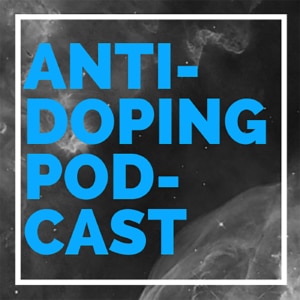
Dr. Mike Sawka is Chief Scientific Officer at Environmental Physiology and Hydration Associates, an Adjunct Professor at Georgia Tech, and a Member of the PCC’s Scientific Advisory Board and the Performance Hematology Working Group. He is also a Fellow of the American Physiological Society (APS). Today, we’re excited to talk about Mike’s career, his work with the PCC over the years, and his involvement with the American Physiological Society. He will also be discussing initiatives from the PCC and the APS designed to attract early-career and established researchers to the field of anti-doping, as well as some of the success stories to date.
114 – NFL’s Continued Support of Clean Sport and the PCC – Adolpho Birch

Adolpho Birch III is currently the Chief External & League Affairs Officer for the Tennessee Titans football team. Previously, he spent more than two decades working for the National Football League (NFL) in various roles. The NFL is one of the Founding Members of the Partnership for Clean Competition, and Adolpho is one of the PCC’s Emeritus Board of Governors Members. In this episode, Adolpho discusses his career, his experiences supporting clean sport, and anti-doping advances in football over the years. In addition, to continue the celebration of the PCC’s 15th anniversary this year, Adolpho talks more about the history and impacts of the PCC in the anti-doping movement.
113 – Learn How the Office of the Athlete Ombuds Supports Team USA – Kacie Wallace

Kacie Wallace is an attorney and the Team USA Athlete Ombuds. The Office of the Athlete Ombuds provides a safe place for athletes to seek confidential, independent, impartial advice, and assistance with sport related matters. In this episode, Kacie talks more about the Office of the Athlete Ombuds, the resources and services they provide, her career path, her role in clean sport, and her work advocating for athletes.
112 – Reticulocyte-related RNAs as biomarkers to detect blood doping – Francesco Loria

Francesco Loria is a Ph.D. student in biomedical science at the Swiss Laboratory for Doping Analysis in Lausanne and the University of Geneva. In this episode, we hear more about Francesco’s career, his research on the potential for reticulocyte-related RNA to be used as biomarkers to detect blood doping, and his receipt of one of this year’s PCC-sponsored Anti-doping Predoctoral Awards in partnership with the American Physiological Society (APS).
111 – Exploring Erythropoietic Outcomes After Intermittent Hypoxia – Frank Wojan, PhD

Dr. Frank Wojan recently completed his PhD in Clinical Physiology at The University of Texas at Austin, and he is currently a Senior Clinical Project Manager with Pluto Health. In this episode, Frank discusses his career path, his research on the effects of intermittent hypoxia on erythropoiesis, and the project that led to his receipt of one of this year’s PCC-sponsored Anti-doping Predoctoral Awards in partnership with the American Physiological Society (APS).
110 – Celebrating Five Decades of Anti-Doping Excellence at the DoCoLab – Peter Van Eenoo, PhD

Dr. Peter Van Eenoo is Professor in the Department of Diagnostic Sciences and Director of the Doping Control Laboratory (DoCoLab) at Ghent University in Belgium. In this episode, we are excited to talk more about Peter, his research and routine work at the DoCo Lab, the history of the lab, and some of their groundbreaking discoveries over the years as they celebrate their 50th anniversary this year.
109 – Examining Biotin as a Masking Agent for hCG Abuse – Jenna Goodrum, PhD

Dr. Jenna Goodrum is a Partnership for Clean Competition Fellow and Research Scientist working in the Sports Medicine Research Testing Laboratory (SMRTL) in Utah. In this podcast episode, we’re excited to discuss Jenna’s career path, her work at SMRTL, her experience as a PCC fellow, and the details of her PCC-funded research project examining biotin as a masking agent for abuse of the hormone human chorionic gonadotropin (hCG).
108 – How Athletics Integrity Unit is Fighting for Fairness in Sport – David Howman

David Howman is Chair of the Board of Directors at the Athletics Integrity Unit for World Athletics, and he has been named Companion of the New Zealand Order of Merit for his services to sport. In this episode, we discuss the Athletics Integrity Unit (AIU) in more detail, covering the founding of the organization, how it has changed over the years, the educational programs and resources they provide, key partnerships for the organization, and the importance of transparency in all aspects of the work done at AIU.
107 – Preventing Use of Appearance and Performance Enhancing Substances by Young Athletes – Donald Hooton, Jr.

Donald Hooton, Jr., is President of the Taylor Hooton Foundation, a non-profit organization dedicated to developing and promoting education programs for young athletes. Pressure to use performance-enhancing and appearance-enhancing substances can be high for students and young athletes, and the Taylor Hooton Foundation fills a critical gap by providing education and a forum for candid discussion of these difficult topics. In this episode, Don shares the history of the foundation, their mission, and how they are contributing to the clean sport movement.
106 – Sport Integrity Australia is Working to Ensure Safe and Fair Sport For All – Naomi Spears, PhD

Dr. Naomi Spears is the former Chief Science Officer and current General Manager of Operations at Sport Integrity Australia, Australia’s designated national anti-doping organization (NADO). In our interview, we talk more about Sport Integrity Australia, the history of the organization, the details of their anti-doping program, how they are incorporating dried blood spot testing into their anti-doping program, and how they are working with others around the world to protect clean sport.
105 – Perspectives on Key Stories and Anti-Doping Efforts in Major League Baseball – Tim Brown

Tim Brown is a New York Times bestselling author and an award-winning national sports columnist covering Major League Baseball (MLB). In this episode, Tim talks about his career and gives us a behind-the-scenes view into some of the biggest stories in MLB’s recent history, including the Balco scandal, the Mitchell report, and the Biogenesis scandal. He discusses some of the major changes that MLB has implemented over the past two decades to detect and deter doping to help ensure clean sport in baseball.
104 – Doping Case Leaves Clean Athletes Still Awaiting Olympic Medals From the 2022 Games – Evan Bates and Madison Chock

Madison Chock and Evan Bates are an elite ice dancing team with numerous accolades, including being the 2023 World Champions and three-time Olympians. They were part of the Beijing 2022 U.S. Olympic Figure Skating Team that has been caught up in what is now more than a year-long saga still awaiting their medals as a result of a competitor’s positive drug test. In this episode, Madison and Evan share their stories, describe how their experiences surrounding the 2022 Olympic Games have impacted them and their teammates, and discuss their commitment to clean sport and the anti-doping movement.
103 – World Rugby’s Dedication to Keeping Sport Clean – Mike Earl

Mike Earl is Director of Anti-Doping and Game Equipment at World Rugby. In this episode, we talk more about Mike’s career in anti-doping, the components of World Rugby’s Anti-Doping programme, current challenges, key partnerships, and focus areas for the organization going forward.
102 – Research and Innovation in Blood Microsampling for Anti-Doping – Christophe Stove, PhD

Dr. Christophe Stove is a faculty member in Pharmaceutical Sciences and Director of the Laboratory of Toxicology at Ghent University. In this interview, he shares more about his career and his research on blood microsampling for anti-doping, including advances in microsampling approaches and strategies for addressing the hematocrit effect in dried blood samples.
101 – USOPC’s Continued Commitment to Clean Sport and Anti-Doping Science – Sarah Hirshland

The U.S. Olympic and Paralympic Committee (USOPC) is a Founding Member of the Partnership for Clean Competition (PCC) and has supported anti-doping research and innovation for 15 years through this valuable partnership. In this episode Sarah Hirshland, Chief Executive Officer of the USOPC, tells us more about the USOPC, the importance of continuing to advance anti-doping science, and what she envisions for the PCC going forward.
100 – Perspectives on the PCC’s 15 Years of Anti-Doping Excellence – Travis Tygart

Travis Tygart is Chief Executive Officer of the U.S. Anti-Doping Agency (USADA), and he has held this position since 2007. USADA is one of the Founding Members of the Partnership for Clean Competition (PCC), and Travis is an Emeritus Board of Governors Member of the PCC. In this interview, we talk more about USADA’s history and also discuss the origins and impacts of the PCC in celebration of the PCC’s 15th anniversary this year.
99 – An Inside Look at NSF and the Certified for Sport Program – John Travis

John Travis is the Certified for Sport Technical Manager at NSF, and in this interview, we talk more about NSF, John’s research, and how he and his colleagues at NSF are working to protect clean sport through their certification programs and other efforts.
98 – Measuring Peptides and Proteins in Anti-Doping – David Cowan, PhD

Dr. David Cowan is Professor Emeritus in the Department of Environmental, Analytical, and Forensic Science at King’s College London. He joins us in this interview to talk more about advances in methods for detecting and measuring peptides and proteins in anti-doping, including work on insulin, IGF-1, and P-III-NP. He also shares updates on a PCC-funded Micro-Grant project and some of the other excellent anti-doping research projects at King’s College London.
97 – Challenges and Progress in Measuring Doping Prevalence – Andrea Petroczi, PhD

Professor Andrea Petroczi is Professor of Public Health at Kingston University London, and she is Chair of the WADA Working Group on Doping Prevalence. Andrea has various areas of expertise in anti-doping, but in this episode we focus our conversation on doping prevalence. She discusses exciting new research in the field, challenges, and opportunities for the future.
96 – Research Updates on Activity-Based Bioassays to Detect HIF Stabilizers and Cannabinoids – Liesl Janssens

Liesl Janssens is a PhD Student at the laboratory of Toxicology at Ghent University. She joins us again in this episode to give us an update on her research focused on developing new detection methods for Hypoxia-inducible factor (HIF) stabilizers. She also discusses recent work that she and her colleagues have been doing to characterize and detect cannabinoids, opioids, and psychedelics using similar activity-based assays.
95 – Anti-Doping Norway’s Use of Intelligence to Inform Test Planning – Fredrik Lauritzen, PhD

Dr. Fredrik Lauritzen is the Science Director at Anti-Doping Norway. In this episode, he shares more about Anti-Doping Norway, use of intelligence-based approaches in anti-doping, and his recent research investigating the effectiveness of using intelligence in the doping control test planning process. You can contact Fredrik by email at fredrik.lauritzen[at]antidoping.no with any questions.
94 – Advances and Innovation from the Center for Research & Expertise in Anti-Doping sciences – Raphaël Faiss, PhD

Dr. Raphaël Faiss is Research Manager at the Center for Research & Expertise in Anti-Doping sciences (REDs) and Senior Lecturer in Exercise Physiology at the University of Lausanne. He is also a former elite cyclist. In this episode, Raphaël shares more about the REDs, anti-doping research, and some of his current research projects, including work investigating potential confounding factors in the Athlete Biological Passport. He also discusses his collaboration on a PCC-funded research project investigating the potential use of performance monitoring to augment anti-doping efforts.
93 – PGA TOUR’s Anti-Doping Program – Renee Tomb

Renee Tomb is Director of Policy Administration at PGA TOUR. In this episode, Renee discusses her work, PGA TOUR’s Anti-Doping Program, and why the PGA TOUR’s clean sport efforts are so critical.
92 – Clean Sport Programs and Initiatives at UK Anti-Doping – Jane Rumble
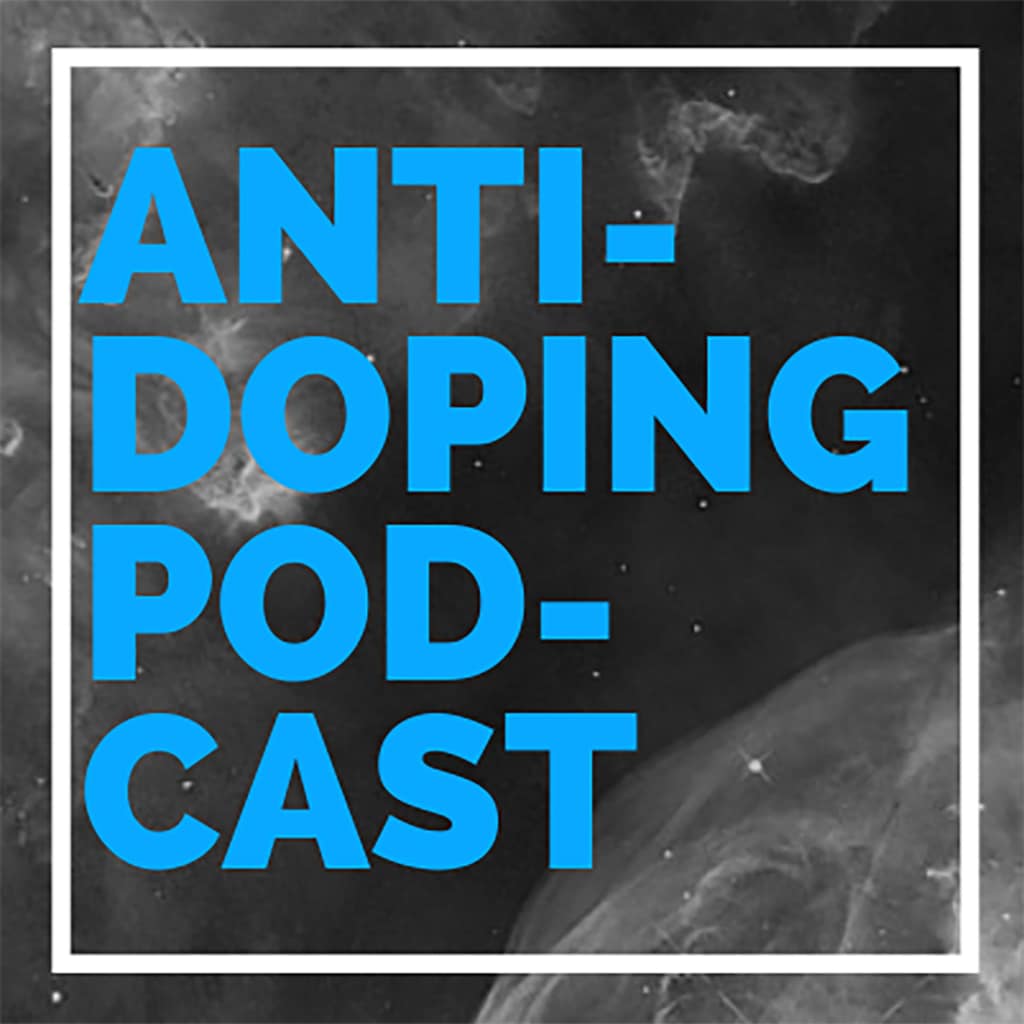
Jane Rumble is Chief Executive at UK Anti-Doping (UKAD). In our conversation, we discuss Jane’s career, UKAD and its history, their efforts to ensure clean sport in the UK, and how the organization has changed and incorporated new innovations over the years.
91 – Developing Instruments for Chemical Analysis in Anti-Doping and Beyond – Andrew Jones, PhD

Dr. Andrew Jones is the CEO and Co-Founder of Activated Research Company, a company dedicated to creating new products to make chemical analysis easy and accessible. In our conversation, we talk more about Andrew’s career, the innovative products he is developing at Activated Research Company, and how their products can be used to advance anti-doping.
90 – Investigating Ion Mobility-Mass Spectrometry for Anti-Doping – Chris Chouinard, PhD

Dr. Chris Chouinard is an Assistant Professor in the Department of Chemistry at Clemson University. In this episode, we discuss Chris’s career, his PCC-funded research investigating the development and potential applications of ion mobility-mass spectrometry for anti-doping, and how his work may impact anti-doping and other fields.
89 – WADA’s Anti-Doping Education and Social Science Research – Tony Cunningham

Tony Cunningham is a Senior Manager in the Education Department with responsibility for Social Science Research and Policy at the World Anti-Doping Agency (WADA). In our interview, we talk more about Tony’s career, education initiatives at WADA, the International Standard for Education and the impacts it is having on anti-doping education, as well as support for social science research at WADA.
88 – Advocating for Athletes and Clean Sport – Léa Krüger

Léa Krüger is a four-time German champion in saber fencing and a current member of the German National Team. She is also an athlete advocate, serving as an athletes’ representative for the German Fencing Federation, a member of the Deutschland Olympic Sports Confederation (DOSB) Athletes’ Commission, a member of the advisory board for NADA Germany, and a member of the Executive Committee of Athleten Deutschland, Germany’s first independent athlete association. In addition, she is a law student at the University of Cologne. In our interview today, we’ll talk more about Léa’s experiences in sport and athlete advocacy.
87 – NADA Germany’s Commitment to Clean Sport – Lars Mortsiefer

Dr. Lars Mortsiefer is Legal Director, Chief Legal Officer, and a Member of the Executive Board of the National Anti Doping Agency of Germany (NADA Germany). He is also Vice-Chair of the Institute of National Anti-Doping Organisations (iNADO). In our interview, Lars shares more about his career, NADA Germany, the organization’s history, and their anti-doping efforts.
86 – Drone Delivery and Other Novel Research at the Anti-Doping Lab Qatar – Vidya Mohamed-Ali, PhD

Dr. Vidya Mohamed-Ali is Scientific Advisor at the Anti-Doping Lab Qatar and Deputy Director of the Centre of Metabolism and Inflammation at University College London. In our conversation, Vidya shares details about her career and research at the Anti-Doping Lab Qatar, including projects focused on detecting blood doping, their work using metabolomics to identify doping via growth hormone and autologous blood transfusion, and an innovative new PCC-funded study exploring use of drones for transport of anti-doping samples.
85 – Anti-Doping Lab Qatar is Dedicated to Protecting Clean Sport – Alka Beotra, PhD

Dr. Alka Beotra is Director of the WADA-Accredited Qatar Doping Analysis Laboratory and Qatar Athlete Passport Management Unit. In our interview, she shares more about the Anti-Doping Lab Qatar, the organization’s history, her career in anti-doping, preparations for the upcoming 2022 FIFA World Cup, and more.
84 – Doping Prevention and Education at the French Anti-Doping Agency – Catherine Coley

Catherine Coley is Director of the Prevention and Education Department at the French Anti-Doping Agency (AFLD). In this episode, she shared more about AFLD’s history and mission, her work on their anti-doping prevention and education programs, and preparations for the upcoming Olympic and Paralympic Games that will be held in Paris in 2024.
83 – Research Updates from the Sports Medicine Research Testing Laboratory – Geoff Miller, PhD

Dr. Geoff Miller is Assistant Laboratory Director at the Sports Medicine Research Testing Laboratory (SMRTL) in Utah. In this episode, we talk more about SMRTL and the exciting research projects Geoff has been working on, including studies to detect growth hormone with capillary dried blood spot testing and capillary whole blood testing for Athlete Biological Passport analyses. He also shares his experiences as a former PCC Research Fellow.
82 – Exploring WADA’s Anti-Doping Administration & Management System (ADAMS) – Chaya Ndiaye

Chaya Ndiaye is the Head of Product at the World Anti-Doping Agency (WADA). In this episode, she guides us through WADA’s Anti-Doping Administration Management System (ADAMS), talking about what it is, how it’s used, and how it has changed and continues to evolve over time to meet the needs of its users in the anti-doping community.
81 – Swiss Doping Control Laboratory and the World Association of Anti-Doping Scientists – Tiia Kuuranne, PhD

Dr. Tiia Kuuranne is Director of the Swiss Laboratory for Doping Control Analyses, Adjunct Professor of Pharmacy at the University of Helsinki, and President of the World Association of Anti-Doping Scientists (WAADS). She is joining us to talk more about her work in the lab as well as the important role that WAADS plays in promoting clean sport.
80 – Anti-Doping Knowledge Center Deep Dive – Rien Tuk

Rien Tuk works for The Anti-Doping Authority Netherlands (Dutch Doping Authority) as Manager of the Anti-Doping Knowledge Center (https://www.doping.nl/). He joins us today to talk more about the Dutch Doping Authority and the unique resource they have developed for disseminating information related to anti-doping. The Anti-Doping Knowledge Center continues to grow, and it is a valuable resource for people around the world. You can contribute to The Anti-Doping Knowledge Center by emailing relevant anti-doping documents such as scientific journal articles, case law, reports, or other documents to adkc@dopingautoriteit.nl.
79 – Anti-Doping Perspectives from the PCC’s Executive Director – Ryan Murphy
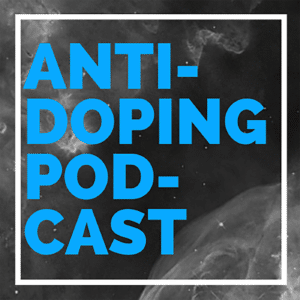
Ryan Murphy joined the Partnership for Clean Competition (PCC) as the Executive Director in 2021. In this episode, he shares more about his current position and his prior career experiences that led him to the PCC. In addition, he talks about the PCC’s mission, current research funding opportunities, and what’s next for the PCC.
78 – Olympic Historian Tracks Anti-Doping History – Bill Mallon, MD

Dr. Bill Mallon is an Olympic historian as well as Co-founder and Past President of the International Society of Olympic Historians. He is also a medical doctor, specializing in orthopedic surgery, and a former professional golfer. Bill joined us in this episode to discuss the history of anti-doping and the Olympics.
77 – The Role of the Court of Arbitration for Sport in Anti-Doping Law – Paul Greene, JD
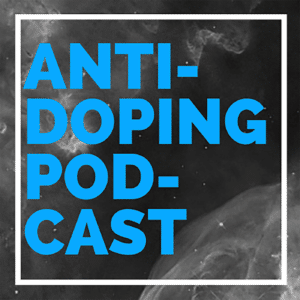
Paul Greene is an attorney at Global Sports Advocates, LLC who represents a variety of clients in the sports realm, including everyone from Olympic committees to athletes accused of doping. He joins us in this episode to discuss the legal process for athletes who might find themselves accused of wrongdoing.
76 – NFL’s Efforts to Promote Clean Sport in Football – Janelle Winston, JD

Janelle Winston is a lawyer who represents the NFL and its teams in labor-management disputes involving compensation and salary, player discipline, electronic medical records, and workers’ compensation, as well as anti-doping. She is also the newest member of the Partnership for Clean Competition’s Board of Governors, representing the NFL. We discuss these topics and more in this episode.
75 – Insights on Anti-Doping from USADA’s General Counsel – Jeff Cook, JD

Jeff Cook is the General Counsel for the U.S. Anti-Doping Agency (USADA), where he leads USADA’s legal and investigative staff as well as the legal department’s arbitration and legal cases. He joins us in this episode to discuss his experiences and his role in fighting doping in sport.
74 – Nordic Skier Advocates For Athletes and Anti-Doping – Noah Hoffman

Noah Hoffman is a two-time Olympian. He competed for Team USA in Nordic skiing before moving on to become an advocate for athletes, both in a personal capacity and as a board member of the group Global Athlete, as well as an Athlete presenter for the Education Team at USADA. Noah joined us in this episode to talk about how doping affects athletes and how it shaped him into the advocate he is today.
73 – Innovative Approaches for Detecting Anabolic Androgenic Steroid Abuse – Fred Schaufele, PhD

Dr. Fred Schaufele is a Professor at the University of California, San Francisco and a Co-Founder at XCellAssay. He’s a research scientist with extensive knowledge and capabilities in a broad variety of biochemical, molecular, and cellular fields. In this episode, Dr. Schaufele discusses recently completed PCC-funded research on detecting anabolic androgenic steroids, specifically in amateur sporting populations.
72 – In-Depth Review of the WADA Prohibited List – Olivier Rabin, PhD

Dr. Olivier Rabin is the Senior Director of Science and Medicine at the World Anti-Doping Agency (WADA). Among his many responsibilities are overseeing the List of Prohibited Substances and Methods as well as the Athlete Biological Passport. He joins us today to talk about the WADA Prohibited List and changes for 2022.
71 – Investigating the Athlete Exposome and its Importance for Drug Testing – Mario Thevis, PhD

Dr. Mario Thevis is Professor and head of the Centre for Preventive Doping Research at the German Sport University of Cologne. He is also Director of the European Monitoring Center for Emerging Doping Agents (EuMoCEDA), a forensic chemist, Editor and Chief of the journal Drug Testing and Analysis, and a Research Scientist with the Partnership for Clean Competition. In this episode, Mario discusses new research focusing on the athlete exposome.
70 – Identifying Protective Behaviors in Athletes to Promote Anti-Doping Adherence – Lindsay Duncan, PhD

Dr. Lindsay Duncan is a professor in the Kinesiology and Physical Education Department at McGill University in Montreal. She specializes in health psychology, health communication, and health interventions. She joins us in this interview to talk about new research focused on guiding athlete behavior in the anti-doping space, specifically investigating athlete protective behaviors.
69 – A Look Inside iNADO and Review of Anti-Doping Research – Jorge Leyva

Jorge Leyva serves as the CEO of the Institute of National Anti-Doping Organisations, also known as iNADO. The organization provides advocacy and support for national anti-doping agencies all over the world. Jorge joins us today to discuss iNADO operations as well as a recent review that the organization conducted regarding the last few decades of anti-doping research.
68 – The Critical Role of Whistleblowers in the Fight Against Doping – Günter Younger
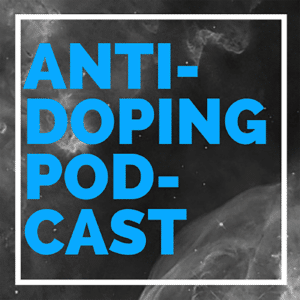
Günter Younger works as the Director of Intelligence and Investigations for the World Anti-Doping Agency (WADA). He comes to the position from a background in law enforcement. In this episode, Günter joins us to talk about the role of whistleblowers in anti-doping, steps being taken to protect whistleblowers, and confidential resources available for people to report suspected wrong-doing in sport.
67 – USADA’s Commitment to Athlete and International Relations in Anti-Doping – Allison Wagner

Allison Wagner serves as the US Anti-Doping Agency’s first Director of Athlete and International Relations. She was formerly an All-American, Olympic, and World Champion swimmer, and her accomplishments include a silver medal in the Atlanta Olympic Games and a former world record set in the World Championships in Palma de Mallorca. Now, Allison is using her experience as an athlete to serve as a voice for others. She joins us in this episode to discuss her role in anti-doping.
66 – Advancing Our Ability to Detect Blood Doping – Nicolas Leuenberger, PhD

Dr. Nicolas Leuenberger conducts research for the Swiss Anti-Doping Lab and the University of Lausanne. His research has traditionally focused on blood doping, and he has also done extensive work on identifying biomarkers in dried blood spots. Nicolas joins us in this episode to discuss his haematological research and his thoughts on the future of detection methods for blood doping.
65 – An Inside Look at the World Anti-Doping Agency’s Athlete Committee – Ben Sandford
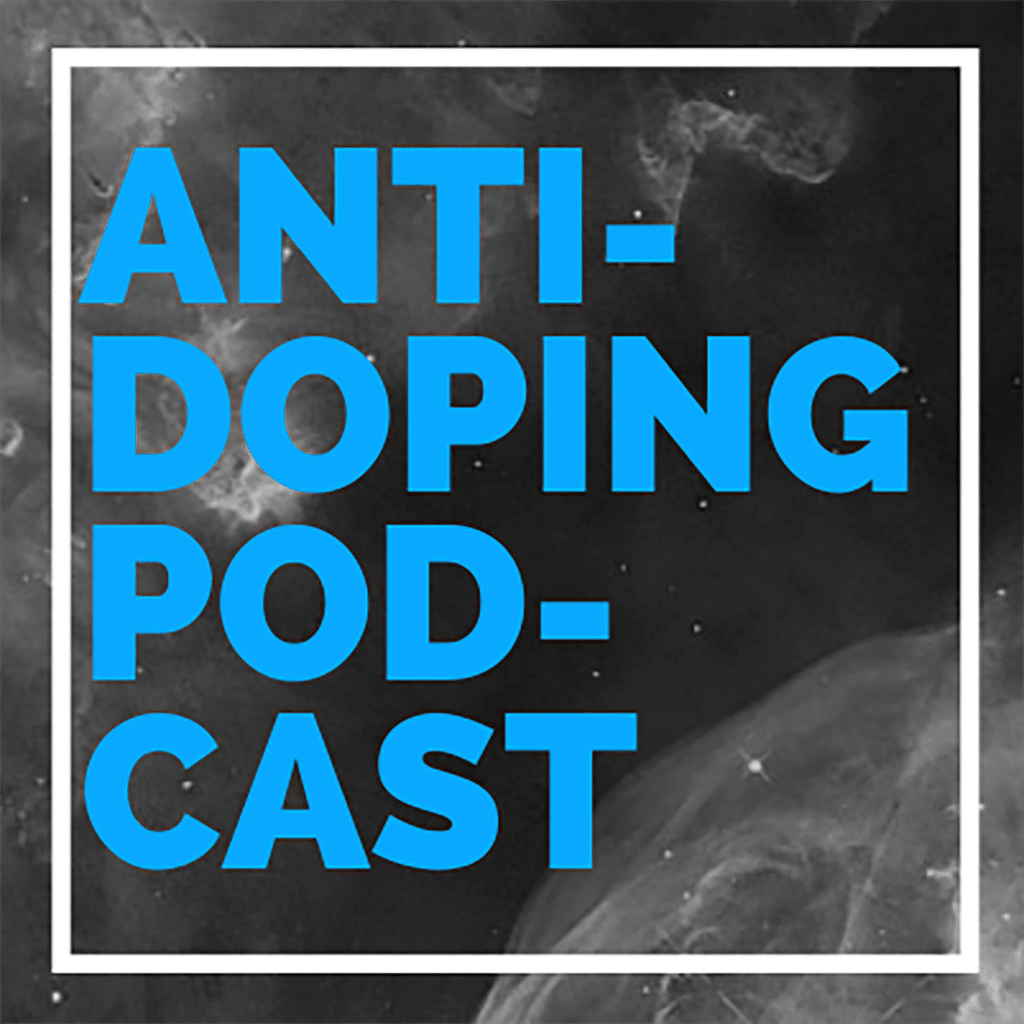
Ben Sandford is a three time Olympian competing in skeleton racing for New Zealand, and he received the Bronze Medal at the 2012 Bobsleigh and Skeleton World Championships. Since wrapping up his athletic career in 2014, he has become the chair of the World Anti-Doping Agency (WADA)’s Athlete Committee. He is also a Member of the New Zealand Olympic Committee Athlete Commission and an attorney with Sandford & Partners. Ben joins us to discuss his experiences and WADA’s efforts to integrate the athlete voice.
64 – Developing Novel Anti-Doping Assays to Monitor Collagen Turnover – Andy Hoofnagle, MD, PhD
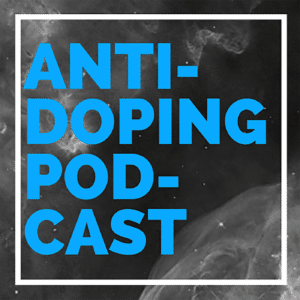
Dr. Andy Hoofnagle is a researcher, professor, board certified pathologist, and laboratory director at the University of Washington. Dr. Hoofnagle’s laboratory focuses on research and development of novel biomarker assays that use mass spectrometry. Andy joins us in this episode to discuss his work in anti-doping, specifically with a focus on the development of assays to measure markers of collagen turnover for anti-doping applications.
63 – How to Secure Anti-Doping Research Funding – Annette Salmeen, PhD

Dr. Annette Salmeen was a 1996 Olympian and gold medalist in swimming. In 2005, she was elected as an athlete member of the USADA Board of Directors, and she served on the board until 2012. Currently, Annette is a lecturer and Core Course Coordinator in the Human Biology Program at Stanford University, and she’s also a member of the Partnership for Clean Competition’s Scientific Advisory Board. In this episode she discusses best practices for applying for anti-doping research grants from the PCC.
62 – The Anti-Doping Agency of Kenya’s Commitment to Clean Sport – Sarah Shibutse

Sarah Shibutse is the Director of Standards and Compliance at the Anti-Doping Agency of Kenya (ADAK). She served as a joint secretary to the Anti-Doping Task Force that was set up by the Ministry of Sports to investigate the extent of doping in Kenya. In this episode, we discuss the findings of this Task Force and the history of ADAK. Sarah shares what it was like creating a national anti-doping organization from the ground up, current challenges they are facing, their goals for the future, and more.
61 – Delivering Innovative Solutions to Fight Doping and Other Sport Integrity Issues – Dominic Mueser
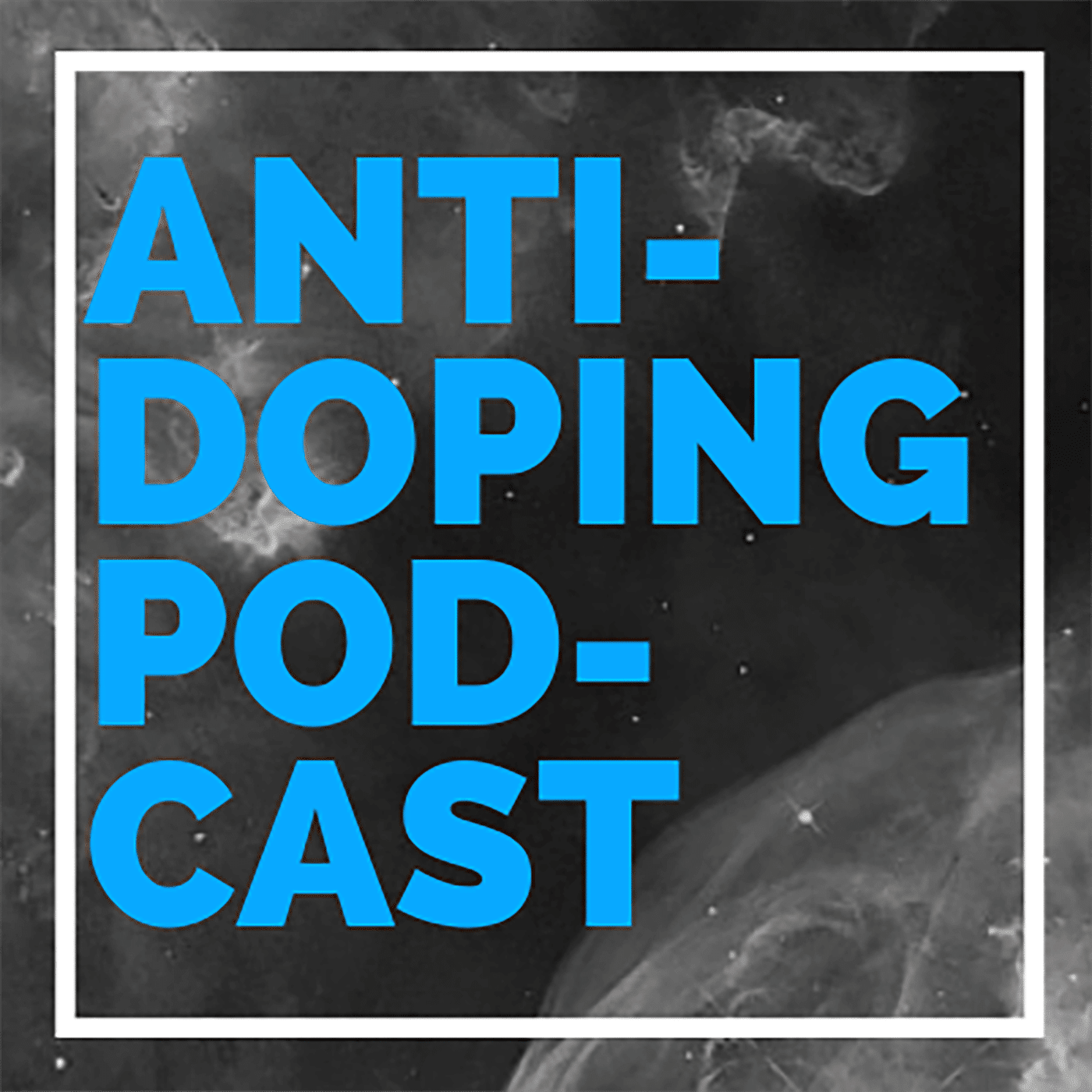
Dominic Mueser has worked in anti-doping for more than a decade, much of it with Germany’s national anti-doping agency. Today, he works at Sportradar, where he serves as the Global Head of Anti-Doping Services. Sportradar primarily collects and analyzes sports data, providing information to everyone from international sports federations to bookmakers. Dominic joins us in this episode to discuss Sportradar’s role in the anti-doping space and how data can be used to help ensure clean sport.
60 – Leading Rigorous Anti-Doping Efforts in Canada – Jeremy Luke

Jeremy Luke is Senior Director of Sport Integrity at the Canadian Center for Ethics in Sport (CCES), the Canadian national anti-doping organization (NADO). He also led the anti-doping program for the Vancouver Olympic and Paralympic Games in 2010. Jeremy joins us in this episode to talk about CCES, discuss how NADO’s have been dealing with the pandemic, and share his insights into what it takes to run anti-doping efforts during the Olympic and Paralympic Games.
59 – Developing New Activity-Based Bioassays to Screen for HIF Stabilizers – Liesl Janssens
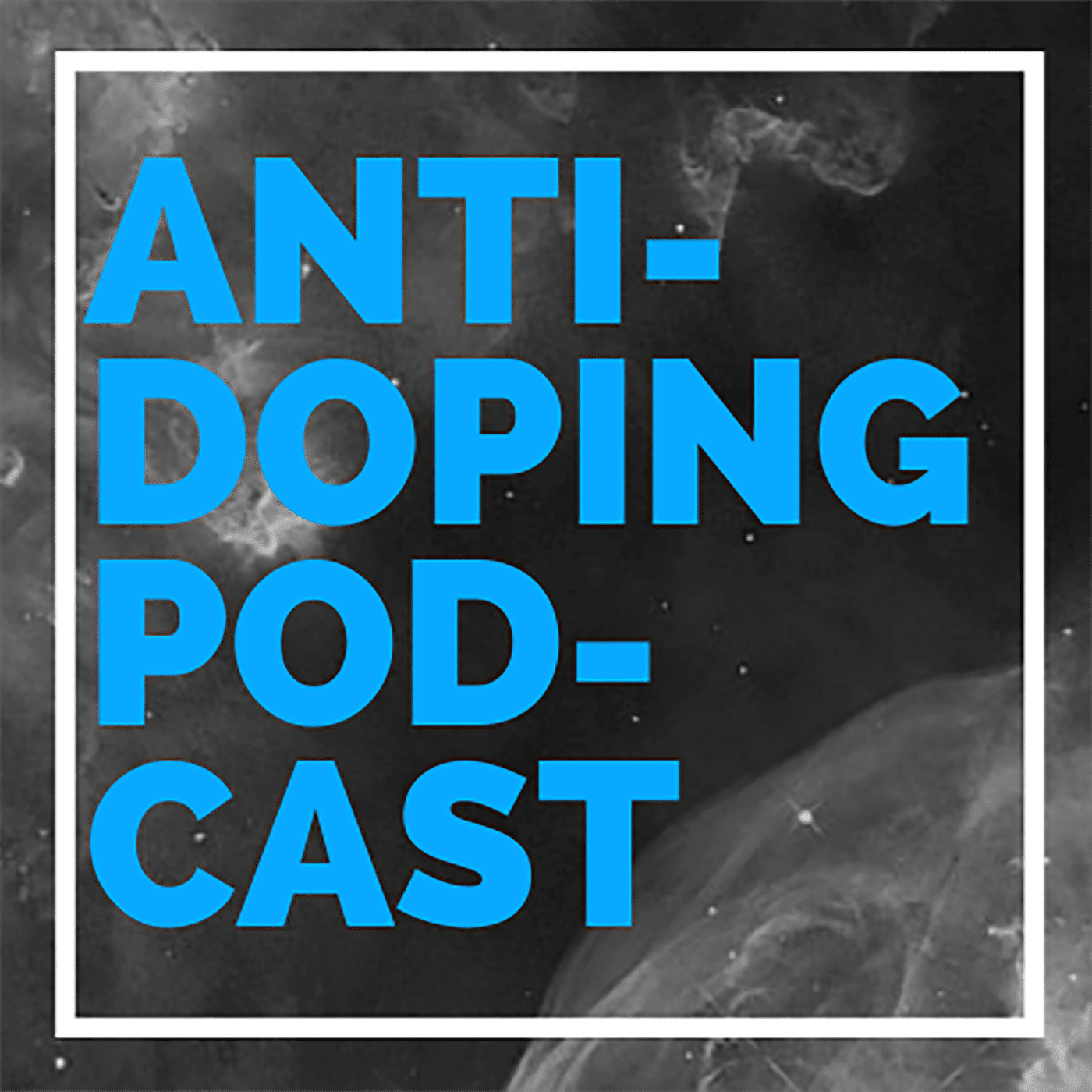
Liesl Janssens is a PhD student in the Lab of Toxicology at Ghent University. Her virtual poster was a finalist in the PCC’s 2021 virtual poster session in the category of Pilot Studies. She is developing novel activity-based bioassays to screen for performance enhancing hypoxia-inducible factor (HIF) stabilizers. HIF stabilizers are small molecules that help to produce more blood cells by stimulating endogenous erythropoietin production. She shares more about this project and her work in this episode.
58 – Cycling Benefits from New Partnership with the International Testing Agency – Olivier Banuls

Olivier Banuls served as the director for the Cycling Anti-Doping Foundation (CADF), and he is now working with the International Testing Agency (ITA) to help fight doping in cycling. He joins us in this interview to talk about the ITA and their new anti-doping efforts in the sport of cycling in collaboration with the Union Cycliste Internationale (UCI). This is the second of our two-episode mini-series taking an in-depth look at anti-doping in cycling, in conjunction with the Tour de France this month.
57 – UCI’s Dedication to Advancing Clean Sport in Cycling – Amina Lanaya

Amina Lanaya is the Director General for the Union Cycliste Internationale (UCI). She joins us in this episode to discuss UCI’s history, current anti-doping issues in cycling, UCI’s recent partnership with the International Testing Agency (ITA) to help combat doping in cycling, and more. This is the first episode of our two-part mini-series focused on anti-doping in cycling in conjunction with the ongoing Tour de France.
56 – JADA’s Role in the Tokyo 2020 Games and Legacy Projects – YaYa Yamamoto, PhD

Dr. YaYa Yamamoto is the Senior Manager of Education & International Relations at the Japan Anti-Doping Agency (JADA). JADA has been critical in helping prepare for the Tokyo Olympic and Paralympic Games, and Dr. Yamamoto has been leading JADA’s initiatives to deliver sporting values-based and anti-doping programs. She is also a member of WADA’s education committee and the International Testing Agency (ITA) International Expert Group. We discuss JADA, the upcoming Games, and more in this episode.
55 – Improving Anti-Doping and Integrity in Biathlon – Greg McKenna
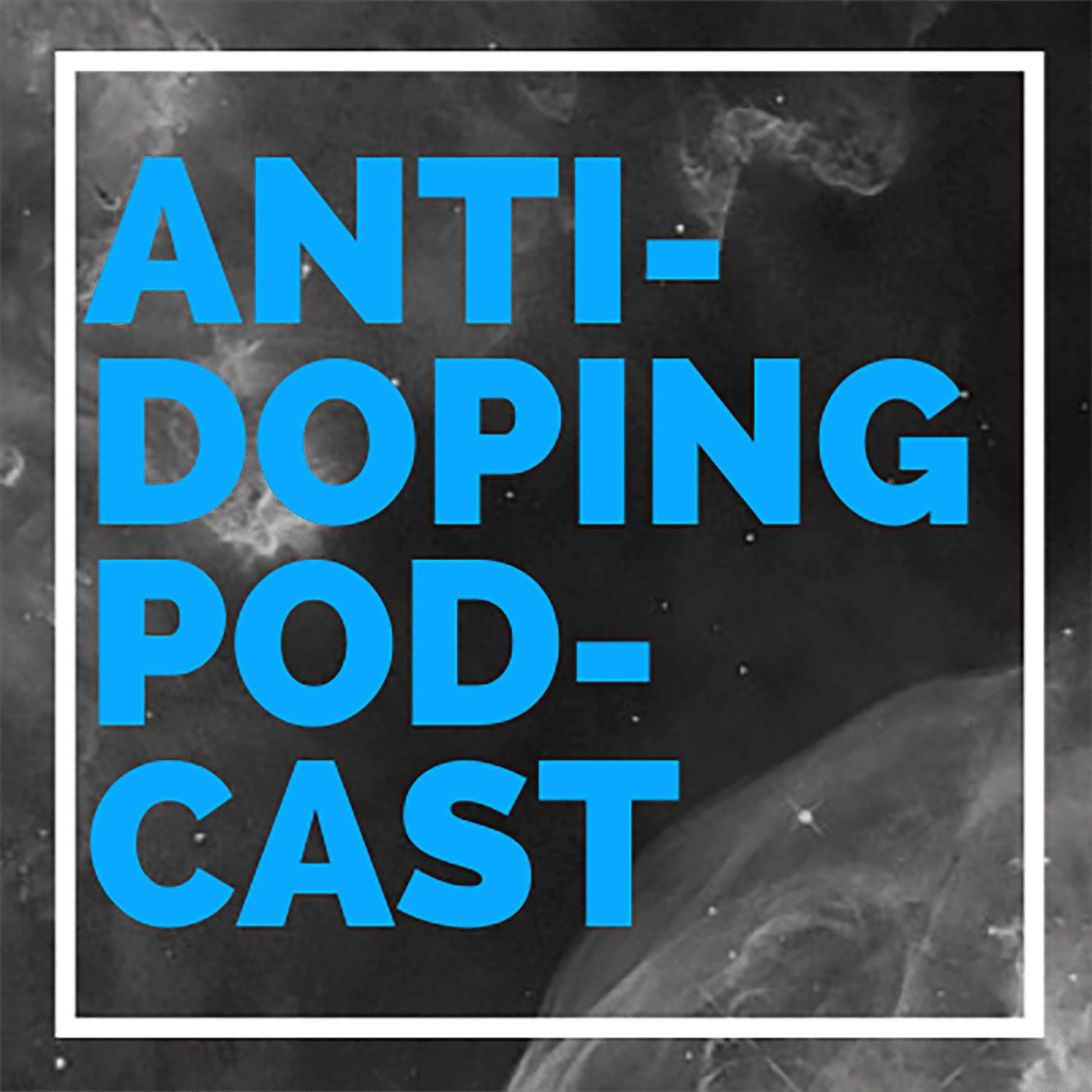
Greg McKenna brings a rich background in investigation and law enforcement to his current position as Head of Biathlon Integrity Unit. In this episode, Greg discusses biathlon, doping concerns for biathletes, recent changes in the sport, development of the Biathlon Integrity Unit, and how he is applying his unique experiences to help continue to develop and refine anti-doping and integrity efforts in biathlon.
54 – An In-Depth Look at Anti-Doping Law and Arbitration – Janie Soublière

Janie Soublière is a sports lawyer and arbitrator. She’s done arbitration and legal work for everyone from the International Court of Arbitration for Sport (CAS) to the Ultimate Fighting Championship’s Anti-Doping Panel. In this episode, Janie discusses her wide array of experiences working on anti-doping cases, tribunals, and arbitration panels. She walks us through the arbitration process for anti-doping cases and shares her insights on some of the next big challenges for anti-doping law.
53 – Enhancing Anti-Doping and Safety in Horseracing – Jim Gagliano

Jim Gagliano is the President and Chief Operating Officer of The Jockey Club, the breed registry for all thoroughbred horses in North America. He also sits on a number of councils and boards related to horse racing. In this episode, we discuss horse racing’s approach to anti-doping, current anti-doping and safety priorities, and recent changes over the past year as a result of some high-profile cases and new legislation.
52 – Developing Molecularly Imprinted Polymers for Anti-Doping – Rachel Hand, PhD

Dr. Rachel Hand is a Research Fellow in Polymer Chemistry at The University of Warwick. In this episode, Dr. Hand discusses her work in the area of advancements in molecularly imprinted polymers and their role in anti-doping as well as her experiences working with the PCC on a recent research project. Plus, we talk about social media and its role in facilitating scientific collaboration in clean sport.
51 – Anti-Doping Efforts and Recent Changes in Weightlifting – Phil Andrews

Phil Andrews is the Chief Executive Officer of USA Weightlifting. He has brought about significant reform to weightlifting internationally, especially in the area of anti-doping. In this episode, he discusses USA Weightlifting’s anti-doping efforts, recent controversy with the International Weightlifting Federation, implications for participation in the Olympic and Paralympic Games, and the way forward for the sport to ensure clean competition.
50 – Advocating for Athletes in Sport and Anti-Doping Law – Howard Jacobs, JD

Howard Jacobs is an attorney and a leading advocate for athletes around the world in doping matters. He has represented more than 300 athletes in disciplinary cases related to various issues in sport. In this interview, Howard shares insights about what it’s like working in anti-doping law, walks through the steps he takes when working on an anti-doping case, and discusses experiences from some of the most memorable and prominent cases he has been involved in over the years.
49 – Developing Novel Methods to Detect Blood Doping – Jean-Francois Naud, PhD

Dr. Jean-Francois Naud is Deputy Director and Research Associate at the Doping Control Laboratory of the National Institute of Scientific Research (INRS) in Québec, Canada. In our interview, he discusses his work at the WADA-accredited Doping Control Laboratory, his path to becoming an anti-doping scientist, his research to improve our ability to detect blood doping, his role in anti-doping testing during the 2010 Olympic Games in Vancouver, and current challenges in anti-doping research.
48 – Detecting Doping with Steroids Using the Athlete Biological Passport – Federico Ponzetto, PhD

Dr. Federico Ponzetto is a part of the PCC Fellowship Program and a Postdoctoral Research Fellow in the Department of Medical Sciences of the University of Turin in Italy. In this interview, we discuss the Steroid Module of the Athlete Biological Passport (ABP) and how Dr. Ponzetto’s research will impact the ABP. He also shares his experiences as a PCC Fellow, complete with advice for those who might be considering this path for themselves or a colleague.
47 – Updates on Research at the World Anti-Doping Agency – Marcia MacDonald, PhD

Dr. Marcia MacDonald is a Deputy Director of Science and Medicine at the World Anti-Doping Agency (WADA). In this interview, we discuss how Marcia began her career in anti-doping, the history of WADA’s anti-doping research program, and their current research priorities. She also shares information about new and ongoing anti-doping research projects, funding opportunities for researchers, implementation of newly developed anti-doping techniques and technology, and more.
46 – International Sports Law, Arbitration, and Anti-Doping – Dr. Despina Mavromati

Dr. Despina Mavromati is an attorney with SportLegis Lausanne specializing in international sports law and arbitration. She is also a Member of the Appeals Body of The Union of European Football Associations, a Member of the Independent Disciplinary Tribunal of World Athletics, and a Member of the Faculty of Law, Criminal Justice and Public Administration of the University of Lausanne. In this episode, we talk about current issues in anti-doping law and arbitration, Despina’s career, and her work.
45 – Applications of Tandem Mass Spec, Bioinformatics, and Proteomics in Anti-Doping – John Yates III, PhD

Dr. John Yates is the Ernest W. Hahn Professor in the Departments of Molecular Medicine and Neurobiology at The Scripps Research Institute in California. He is also a member of the PCC’s Scientific Advisory Board and a world-renowned expert in proteomics. In this episode, he discusses his career path, his research, impacts of the global pandemic, and potential applications of advanced analytical approaches such as tandem mass spec, bioinformatics, and proteomics for anti-doping.
44 – An In-Depth Look at Anti-Doping Investigations at Major League Baseball – Moira Weinberg, JD

Moira Weinberg is Vice President of Investigations and Deputy General Counsel at Major League Baseball (MLB). In our interview, she discusses the formation and organization of Major League Baseball’s Department of Investigations, some of the different types of cases they handle, the general process involved in conducting investigations for anti-doping and other cases, key anti-doping programs and resources for players, and some of the major challenges and priorities for MLB investigations.
43 – Remote Drug Testing and Preparing For Future Crises – Matthew Fedoruk, PhD

Dr. Matthew Fedoruk is Chief Science Officer at the United States Anti-Doping Agency (USADA). In this interview, we talk about USADA’s new remote drug testing program, how USADA has been impacted by the COVID-19 pandemic, major challenges the global anti-doping community is currently facing, and his role in the World Anti-Doping Agency (WADA)’s Strategic Testing Expert Group focused on preparing for future crises.
42 – Paralympic Powerlifter Advocates for Anti-Doping – Ali Jawad
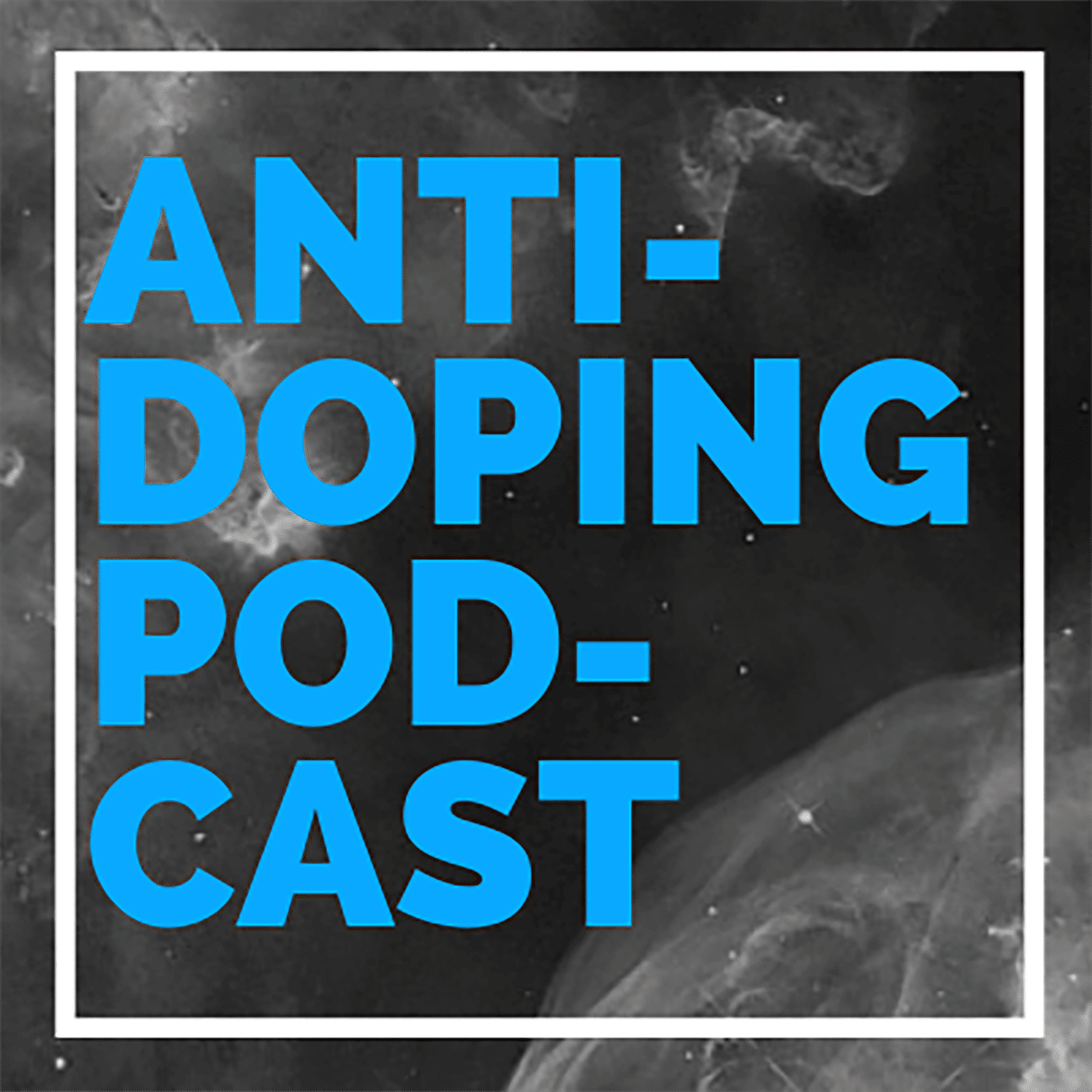
Ali Jawad is an accomplished British powerlifter and Board Member of the Commonwealth Games Team England. He was awarded a bronze medal in the 2018 Commonwealth Games, a silver medal in the 2016 Paralympic Games, and gold medals in the 2015 IPC Powerlifting European Championships and 2014 IPC Powerlifting World Championships. Ali discusses his career, some of the challenges he has faced, his perspective on anti-doping as an elite athlete, and his work as a Member of the Start Up Group with Global Athlete.
41 – The Impacts of COVID-19 on the Olympic and Paralympic Games – Jonathan Finnoff, DO
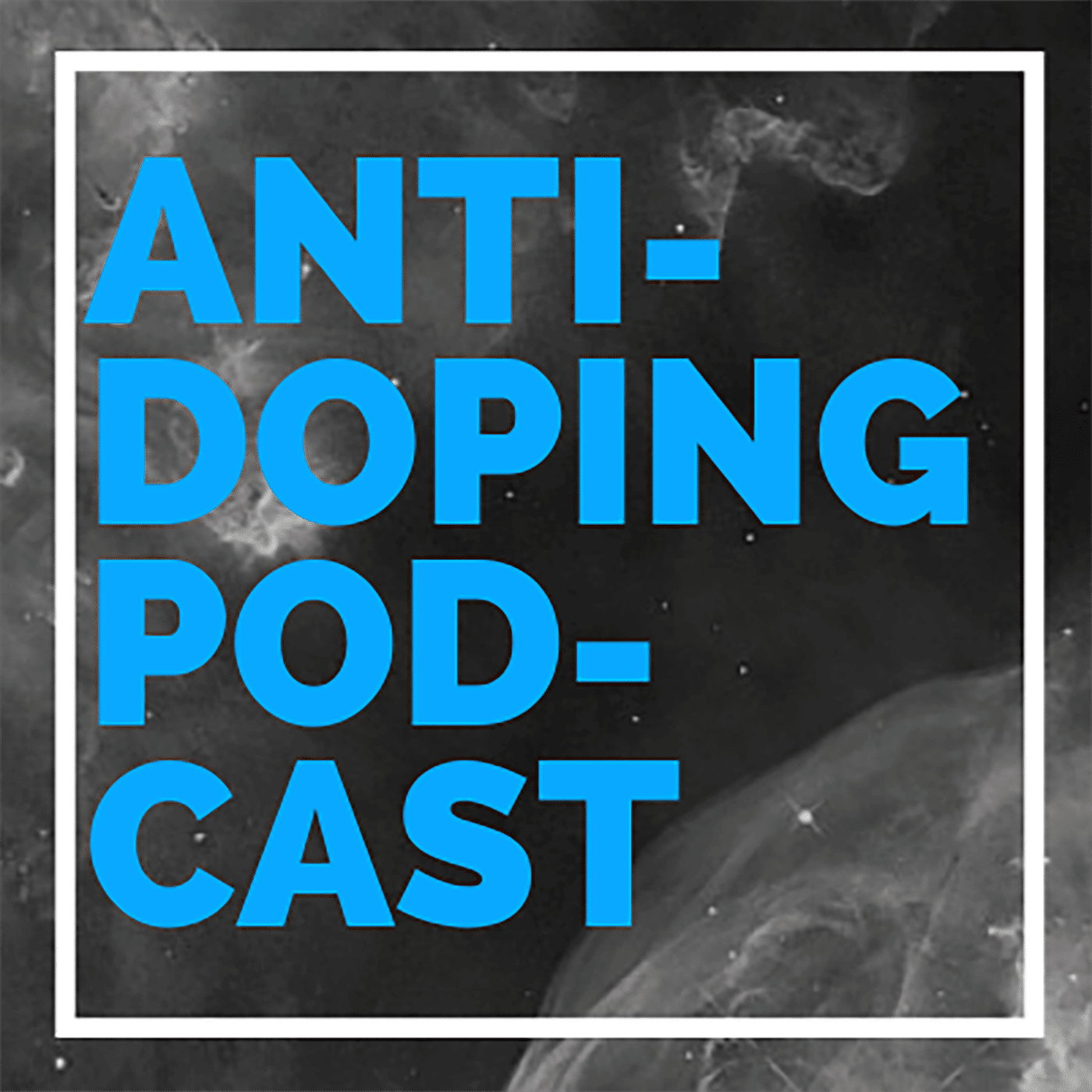
Dr. Jonathan Finnoff is Chief Medical Officer of the U.S. Olympic and Paralympic Committee (USOPC). In our interview, he discusses the timeline of events leading up to the postponement of the 2020 Olympic and Paralympic Games, the broad spectrum of effects this pandemic has had on athletes, new protocols and safety measures in place at training centers, anti-doping and COVID-19 testing procedures, and how the USOPC has been dealing with some of the major challenges that have arisen during this pandemic.
40 – How PGA TOUR Is Handling COVID-19 – Andy Levinson
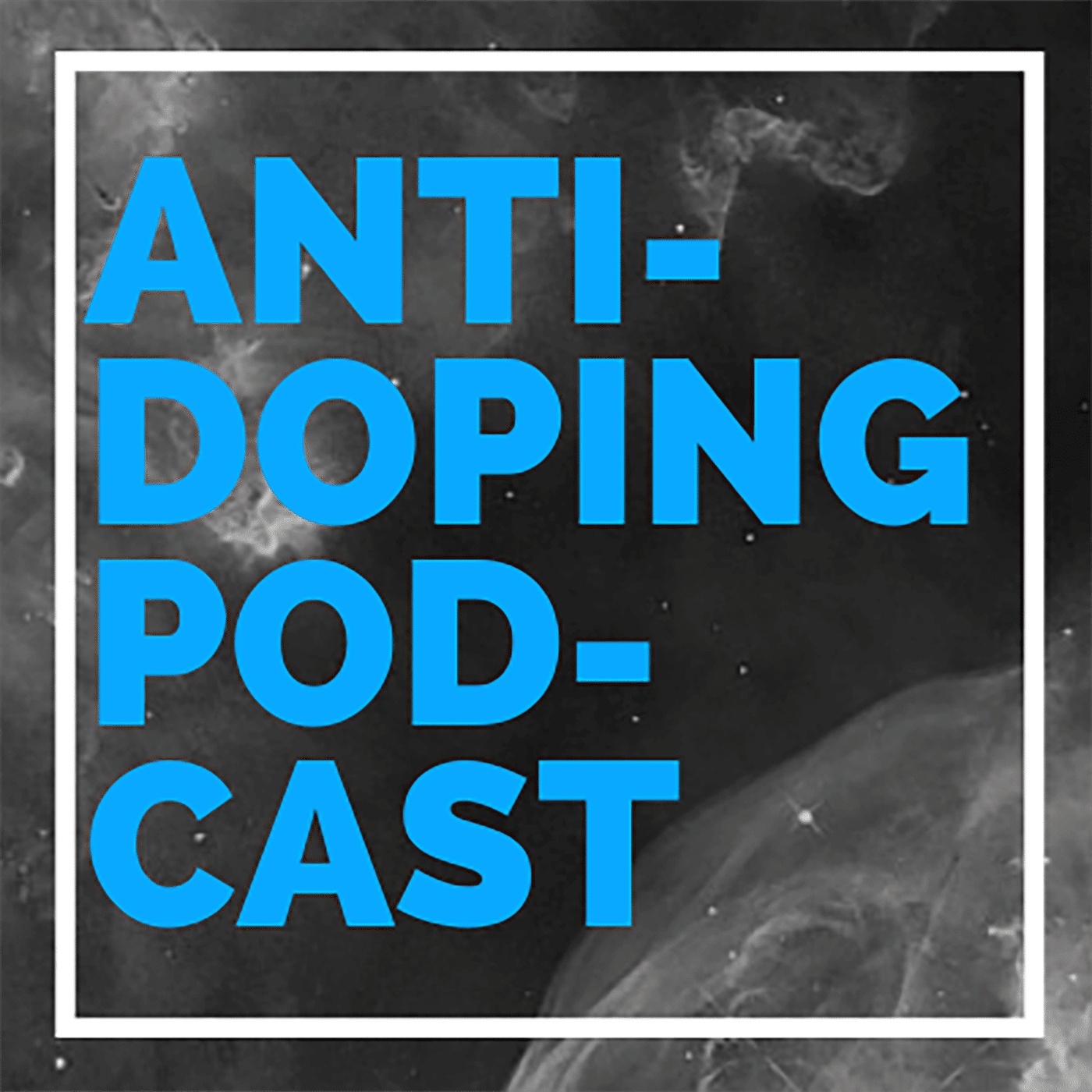
Andy Levinson is Senior Vice President of Tournament Administration at PGA TOUR and Executive Director of USA GOLF. In our interview, he provides an insider look at how PGA TOUR has navigated some of the major challenges posed by the COVID-19 pandemic and the new protocols and restrictions they have put in place to protect players, staff, and spectators. He also discusses their innovative solution to addressing issues surrounding COVID-19 testing for players, impacts on their anti-doping programs, and more.
39 – Major League Baseball’s Response to COVID-19 – Jon Coyles, JD
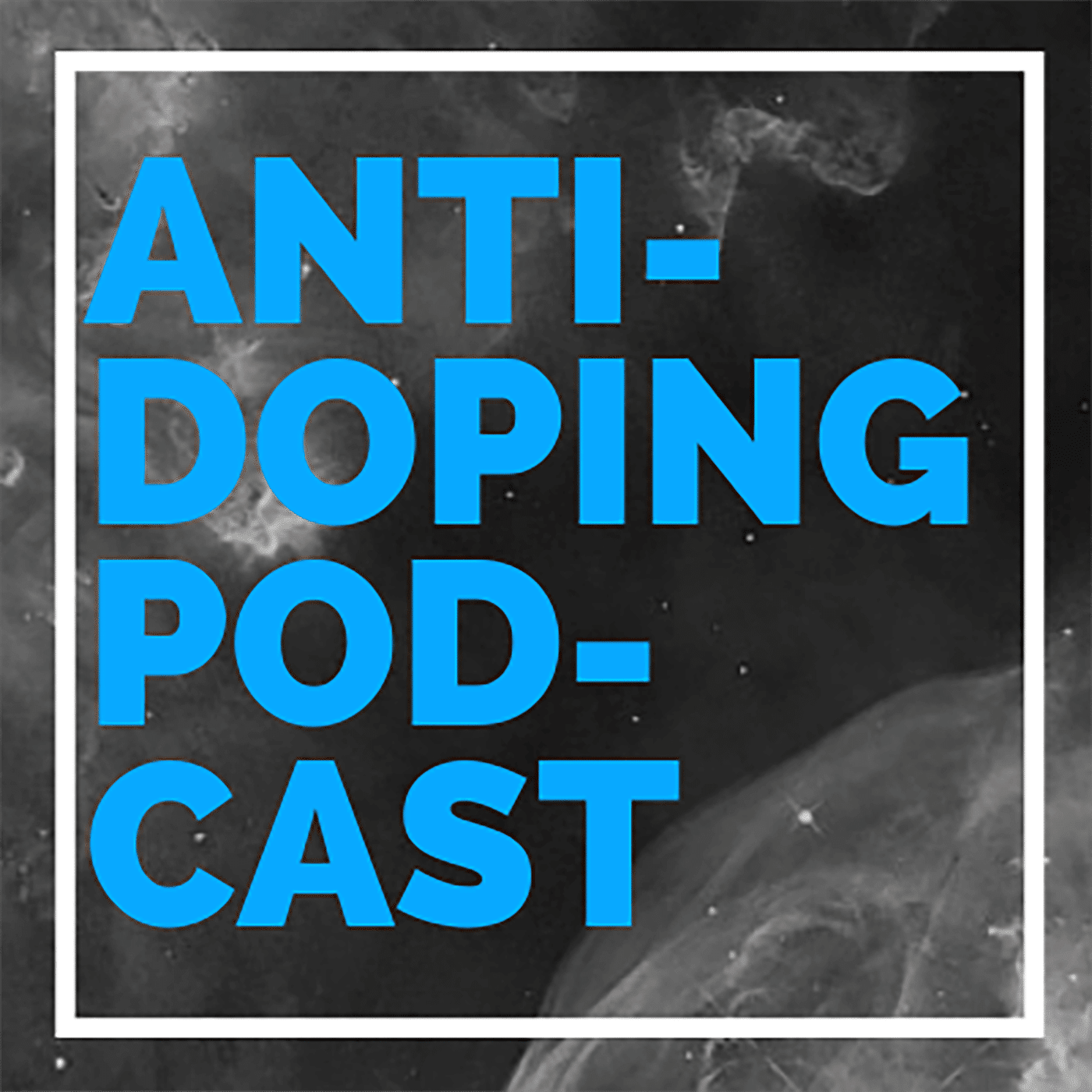
Jon Coyles is Vice President of Drug, Health and Safety Programs at Major League Baseball (MLB). In this episode, he gives us a behind-the-scenes look at some of the biggest challenges that MLB has faced as a result of COVID-19, the safety protocols they developed in response to the pandemic, how these protocols were developed, MLB’s COVID-19 testing requirements and logistics, as well as the impacts of the pandemic on MLB’s anti-doping programs, their regular season, and the postseason as it begins.
38 – Impacts of Altitude and Iron Supplementation on Haematological Responses – Laura Garvican-Lewis, PhD
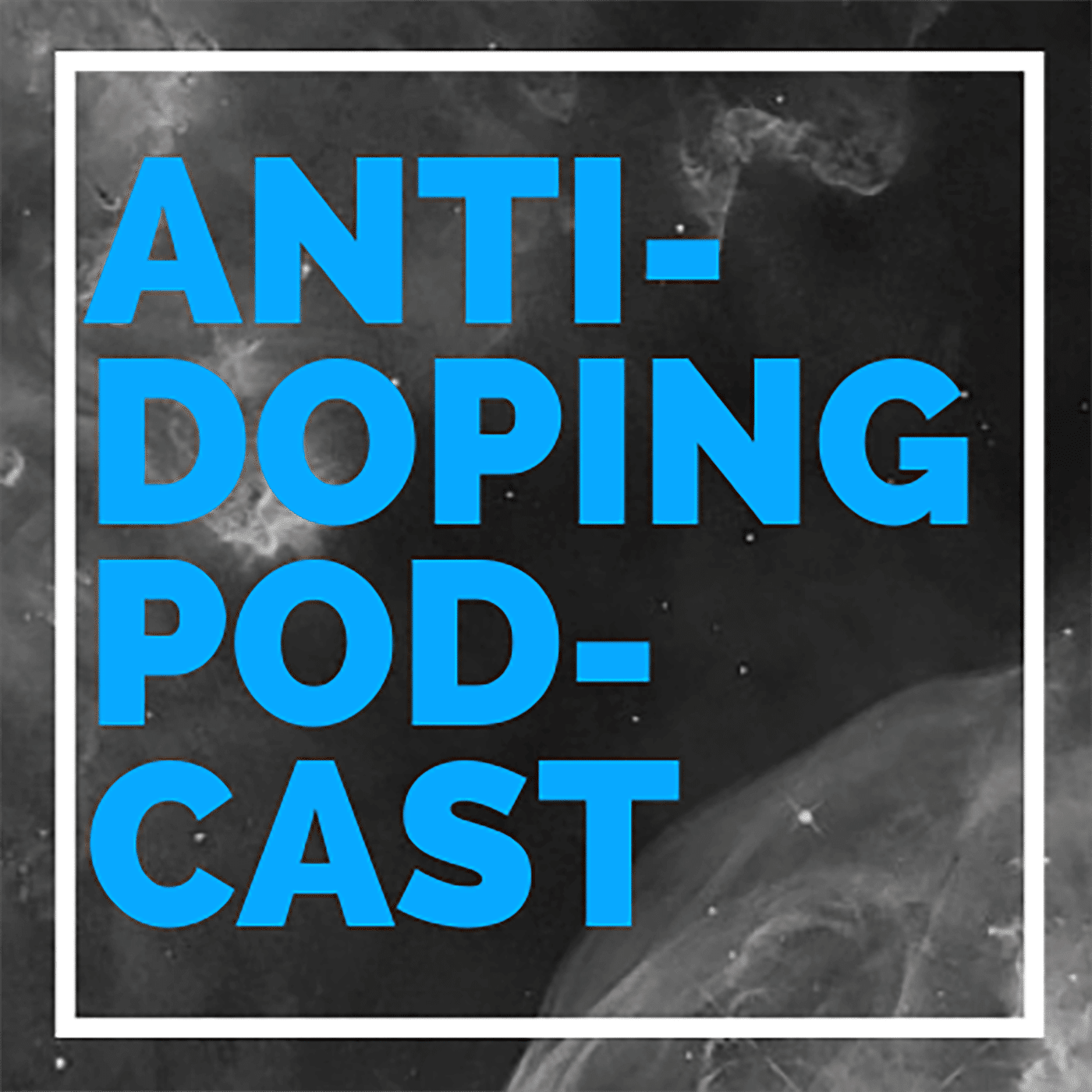
Dr. Laura Lewis is Director of Science at the US Anti-Doping Agency. Previously, she was a Research Fellow at the Australian Catholic University. She was awarded a PCC Research Grant in 2015 and a PCC Fellowship in 2018. We discuss her work on hematological responses to altitude training and iron supplementation, how these impact the Athlete Biological Passport (ABP), her recent work validating a model that addresses blood plasma volume variance in the ABP, and her experiences as a PCC Fellow.
37 – Dietary Supplement Certification to Protect Athletes – Lori Bestervelt, PhD
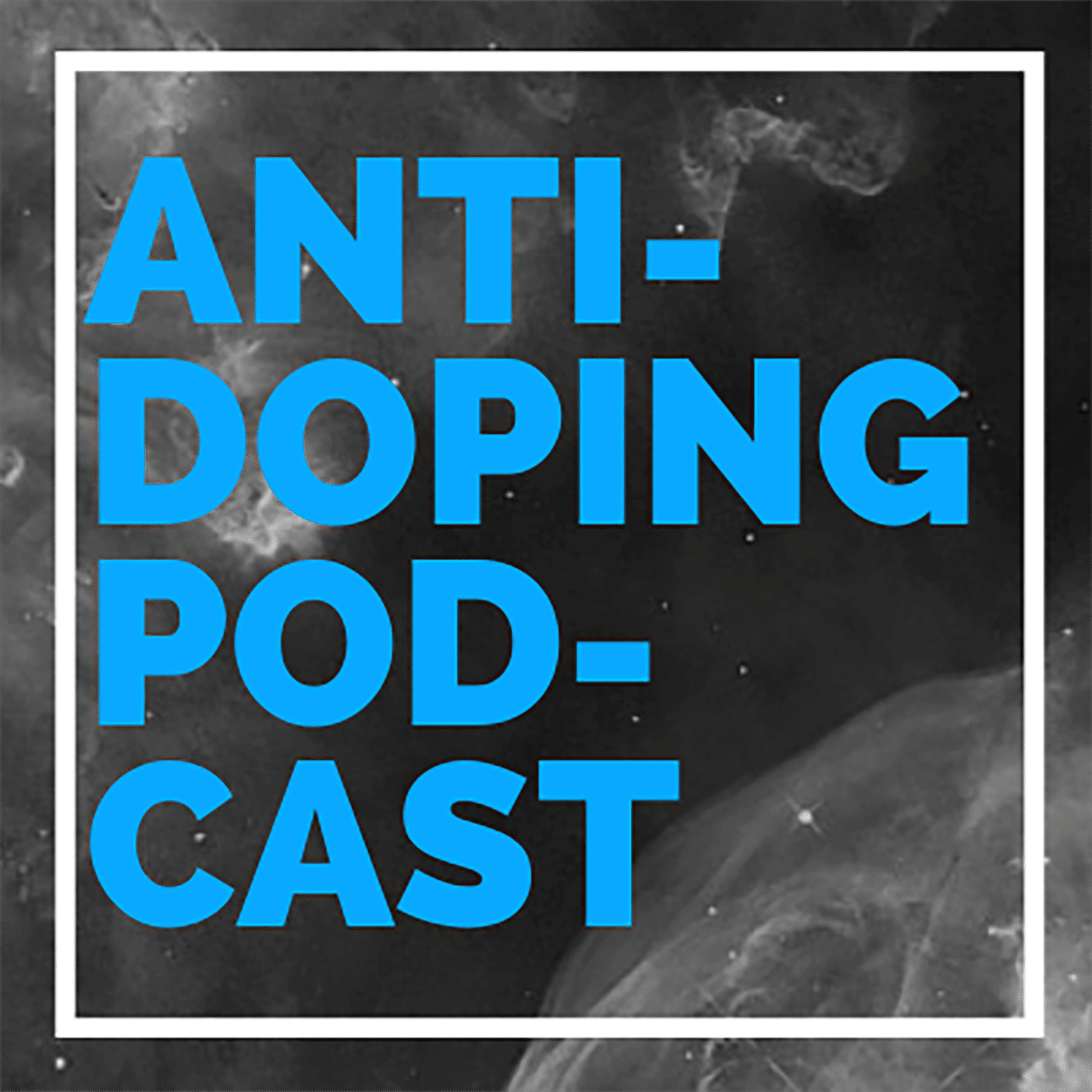
Dr. Lori Bestervelt is Director of Business Development & Partnerships at ChemFORWARD, a nonprofit collaboration of brands, retailers, and NGOs providing high quality, actionable data on chemical hazards. She was formerly Executive Vice President & Chief Science Officer at NSF International, an independent, global, accredited inspection organization. Lori discusses anti-doping issues related to dietary supplements, how supplements are regulated, and her work to create the NSF Certified for Sport Program.
36 – Physician Committed to Clean Sport and Athlete Safety – Ed Merrens, MD, MHCDS
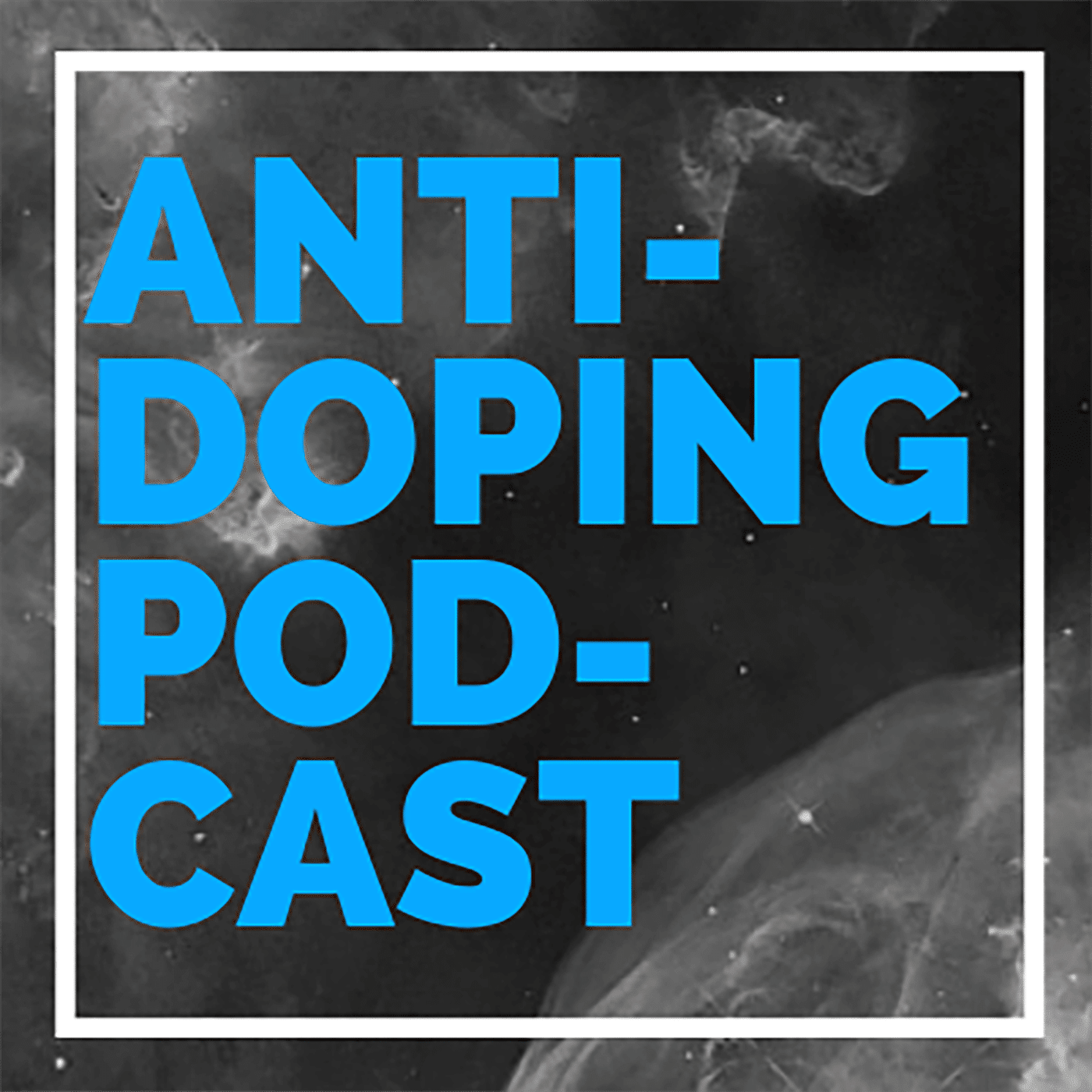
Dr. Ed Merrens is Chief Clinical Officer and a Hospitalist at Dartmouth-Hitchcock, Assistant Professor of Medicine at Dartmouth’s Geisel School of Medicine, and Board Member of the U.S. Anti-Doping Agency (USADA). He shares his perspective on challenges in anti-doping, the impacts of COVID-19 on sport, and exciting developments in anti-doping. Ed also discusses his role on the Board of USADA and his experiences as a team physician for U.S. Biathlon and the U.S. Olympic and Paralympic Committee.
35 – Intelligence-Based Anti-Doping and International Anti-Doping Efforts – Michael Ask
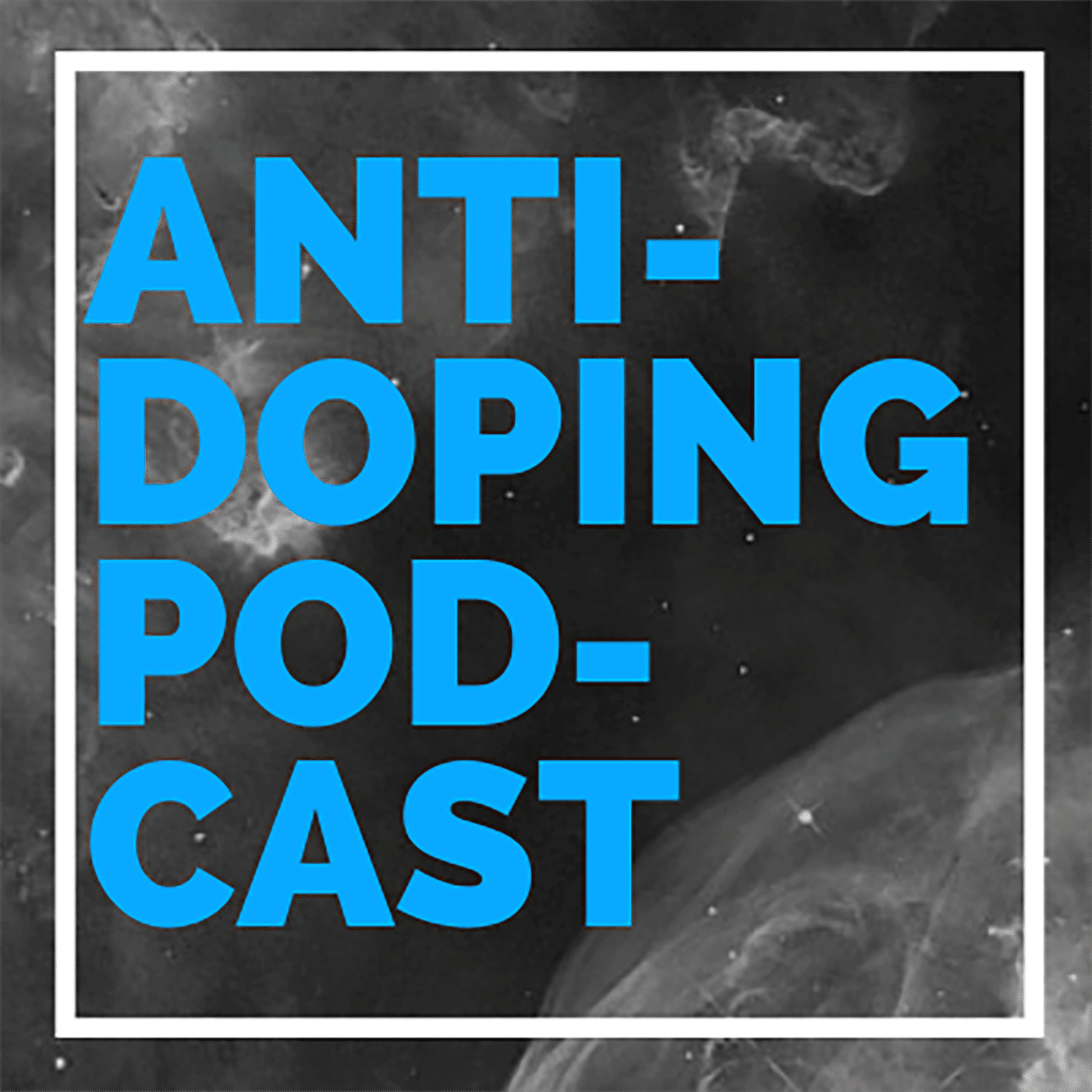
Michael Ask is CEO of Anti-Doping Denmark and Chairman of the International Association of National Anti-Doping Organizations (iNADO). He discusses intelligence-based anti-doping, different types of evidence they collect in anti-doping cases, the goals and objectives of iNADO, the importance of anti-doping education, the wide variety of disciplines that come together in anti-doping, and how his previous career in law enforcement with the Danish National Police Force has helped him in his current roles.
34 – Executive Director Update on the PCC’s Response to COVID-19 – Michael Pearlmutter, MBA
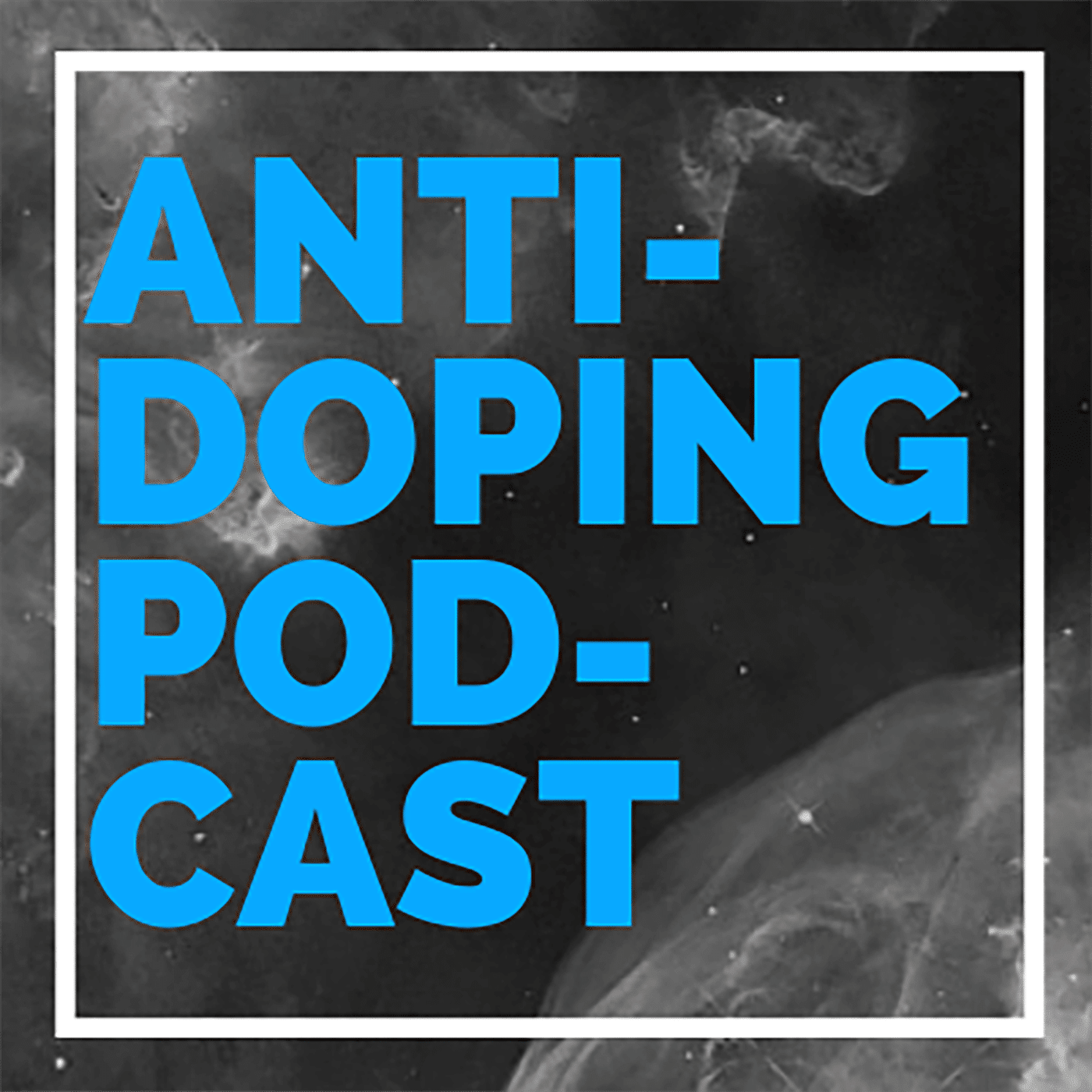
Michael Pearlmutter, MBA, is Executive Director of the Partnership for Clean Competition (PCC). In this episode, Michael provides an update on how the PCC and the anti-doping community have been impacted by the global COVID-19 pandemic, the PCC’s recent partnerships to support COVID-19 testing and research, and the PCC’s dedication to public health and ensuring the health and safety of all athletes during this challenging time.
33 – An Inside Look at a WADA-Accredited Laboratory – Francesco Botrè, PhD
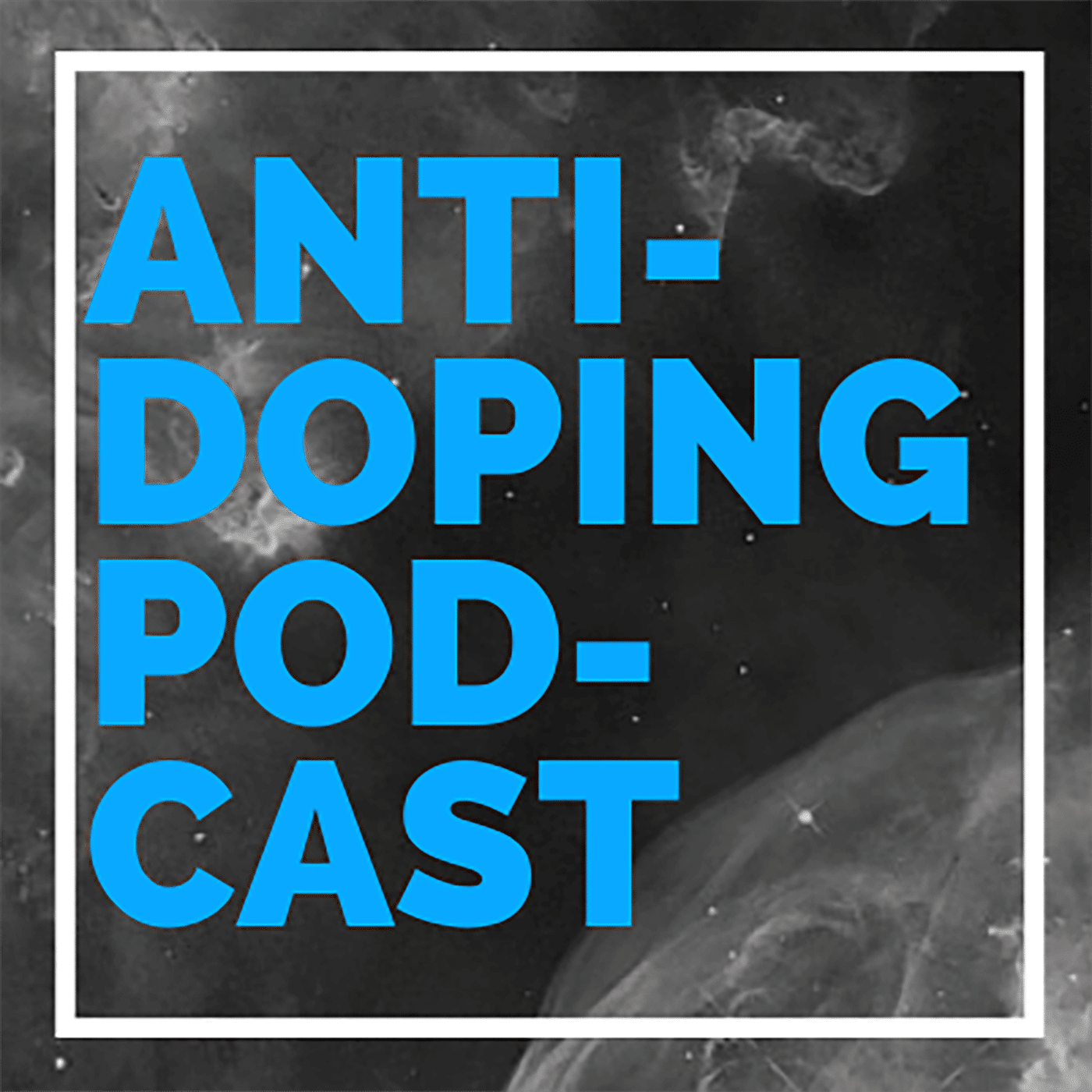
Francesco Botrè, PhD, is Director of the WADA-Accredited Laboratorio Antidoping Federazione Medico Sportiva Italiana (FMSI Anti-Doping Lab). He shares the history of FMSI Lab and the complex process of how samples are collected, delivered, anonymized, processed, analyzed, and interpreted by the lab. Francesco also discusses his research on doping masking agents, metabolic modulators, and drug-drug interactions, as well as his experiences running testing in the 2006 Winter Olympic Games in Torino, Italy.
32 – Potential Applications of Performance Monitoring in Anti-Doping – James Hopker, PhD
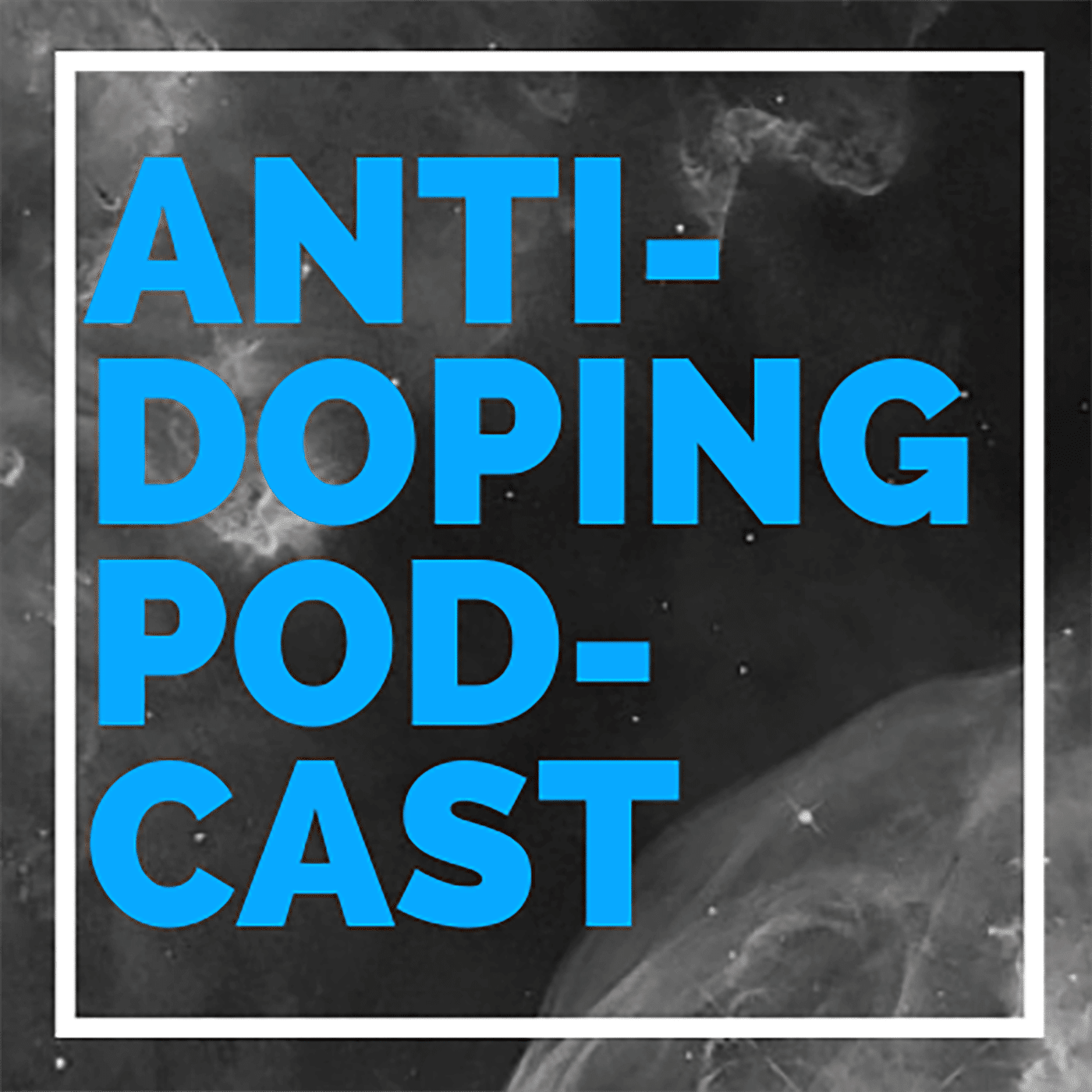
Dr. James Hopker is a Reader in Exercise Physiology, Director of Postgraduate Research, and Acting Head of School for the School of Sport and Exercise Sciences at the University of Kent. He is an expert on exercise training, and he has been studying applications of performance monitoring in anti-doping. We discuss how an Athlete Performance Passport may complement the Athlete Biological Passport, the role of technology in performance monitoring, and strengths and limitations of this approach in anti-doping.
31 – Driving Innovation in Sample Collection Equipment – Gabe Baida
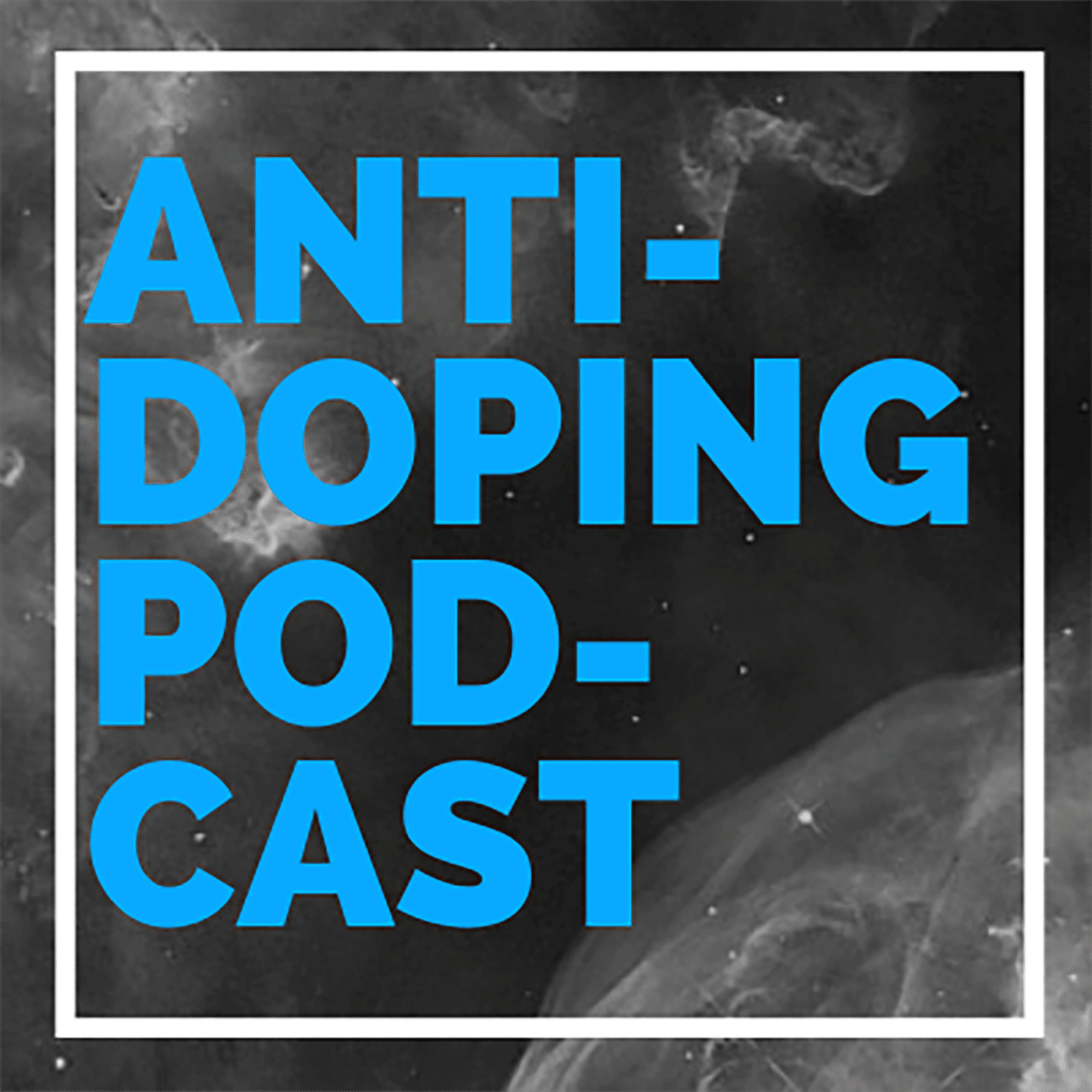
Gabe Baida is currently Executive Director of InnoVero, and he was formerly UFC and Premier Sport Director at the U.S. Anti-Doping Agency. In this episode, he discusses his prior work with USADA, issues with maintaining the security and integrity of samples and sample collection equipment, the security features and benefits of the new InnoVero Safe System, the importance of collaboration in developing novel anti-doping products, and the need for continued innovation in anti-doping testing and equipment.
30 – Using Optical Sensors to Detect Doping – Judy Su, PhD
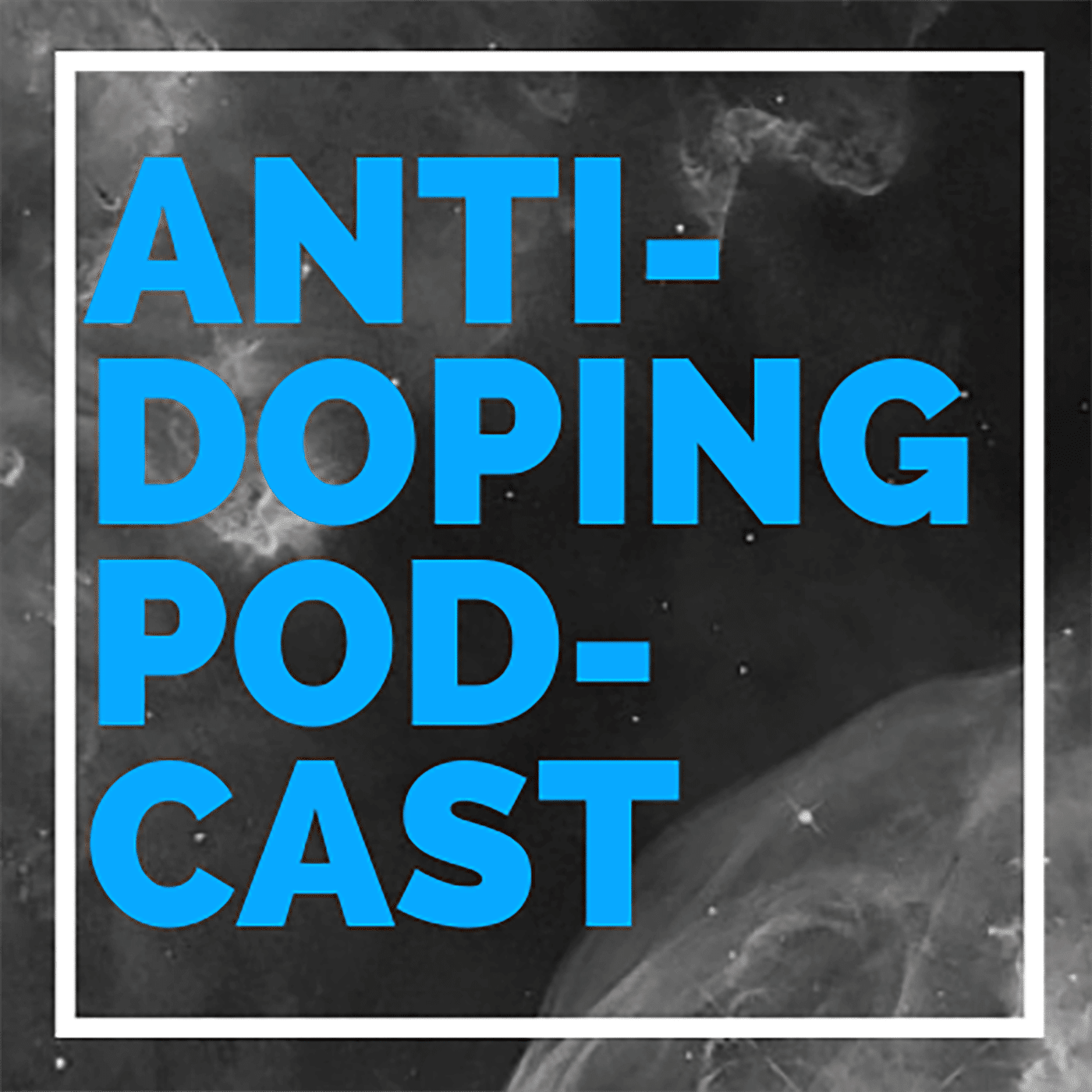
Dr. Judy Su is Assistant Professor in Biomedical Engineering, Optical Sciences, and the BIO5 Institute at the University of Arizona. She is developing novel sensors that use light to detect extremely low concentrations of substances. She shares how the sensors are made, how they work, and how they could be used in testing for doping. Beyond their high sensitivity, the sensors deliver results rapidly, require low sample volumes, and are better suited to detecting microdosing and drugs with a short half life.
29 – Developing Evidence-Informed Interventions to Enhance Anti-Doping Programs – Susan Backhouse, PhD
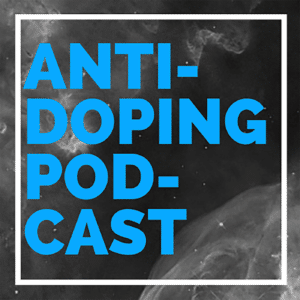
Susan Backhouse, PhD is Professor of Psychology and Behavioral Nutrition as well as Director of Research for Sport and Exercise Science, Leisure, and Tourism at Leeds Beckett University. She discusses the bystander effect and an anti-doping bystander intervention program she helped develop, creating the largest coach-centered doping education program in the world, issues with therapeutic use exemptions for asthma, aspects of the behavioral science of whistleblowing and reporting doping in sport, and more.
28 – All About Anti-Doping Reference Materials – Lindsey Mackay, PhD
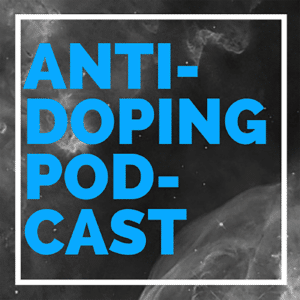
Dr. Lindsey Mackay is General Manager at the National Measurement Institute in Australia. She tells us what reference materials are, how they are used in drug testing labs, why they are critical for anti-doping, how they are made, how they are distributed, and more. She also shares major challenges in making reference materials and a recent project in which they created new reference materials to differentiate between testosterone-related steroids from external sources versus made naturally by the body.
27 – Exploring Key Issues in Sports Ethics and Integrity – Mike McNamee, PhD
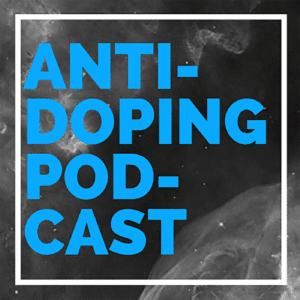
Dr. Mike McNamee holds Professorships at Swansea University, UK; and KU Leuven, Belgium, and he is Programme Director of the world’s only Master Degree in Sport Ethics and Integrity, sponsored by the European Commission’s Erasmus+ Programme. He is a renowned expert in sports ethics, sports integrity, and anti-doping policy. We discuss a variety of ethical issues related to fair sport, including athlete privacy concerns in providing whereabouts, security issues for athletes’ data, use of advanced technology and prosthetics in sport, match fixing, and more in this episode.
26 – Paracanoe Athlete Shares Her Path to Competing on Team USA – Channing Cash
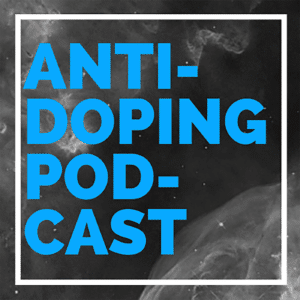
Channing Cash is an accomplished Team USA Paracanoe Athlete, and she tells us the incredible series of events that led to her becoming a professional athlete. We cover her early childhood in a small village in Laos, the many struggles she has overcome, constructive ways to cope with roadblocks in performance, her experiences with anti-doping education and testing programs as an athlete, challenges athletes face with inadvertent ingestion of banned substances in supplements and other consumables, and more.
25 – Detecting and Deterring Growth Hormone Abuse in Sport – Richard Holt, PhD, FRCP, FHEA

Dr. Richard Holt is Professor in Diabetes and Endocrinology within Medicine at the University of Southampton. In our interview, he discusses what growth hormone is, its normal physiological functions, the mechanisms through which it may enhance athletic performance, potential side effects and dangers of doping with growth hormone, challenges in detecting growth hormone abuse, the history of growth hormone testing in sport, the new innovative growth hormone testing methods he has helped develop, and more.
24 – Using P-III-NP as a Biomarker to Detect Growth Hormone Doping – Danielle Moncrieffe, PhD
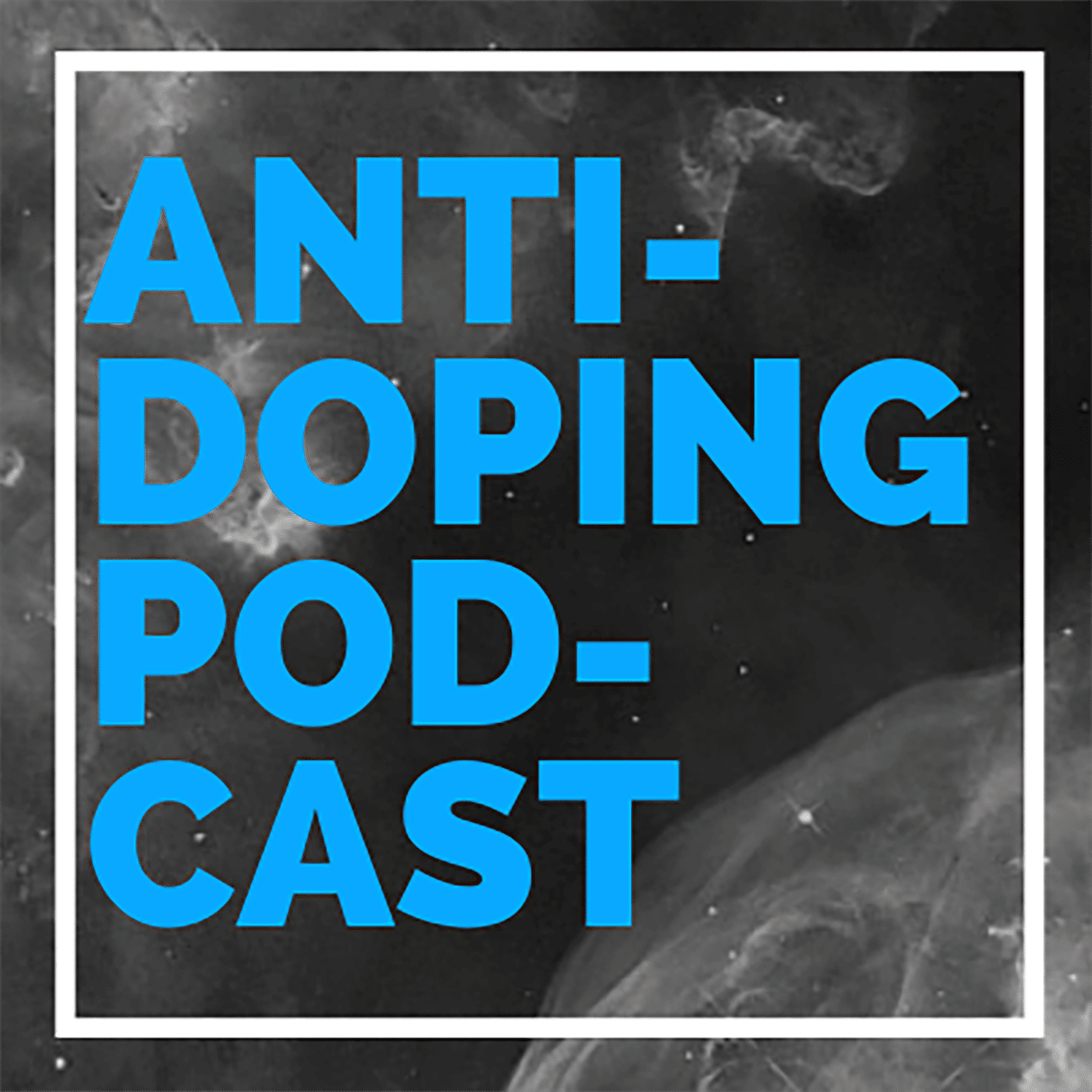
Danielle Moncrieffe, PhD is a Research Associate and Partnership for Clean Competition Research Fellow at the Drug Control Centre at King’s College London. She has been developing novel liquid chromatography methods to detect growth hormone doping by quantifying the biomarker procollagen III amino-terminal propeptide (P-III-NP). Danielle explains what P-III-NP is, its clinical relevance, and its relevance in anti-doping. She also shares her experiences as a PCC Fellow and the benefits of this fellowship.
23 – Breath Testing Technology and Other Novel Methods to Detect Doping – Mario Thevis, PhD
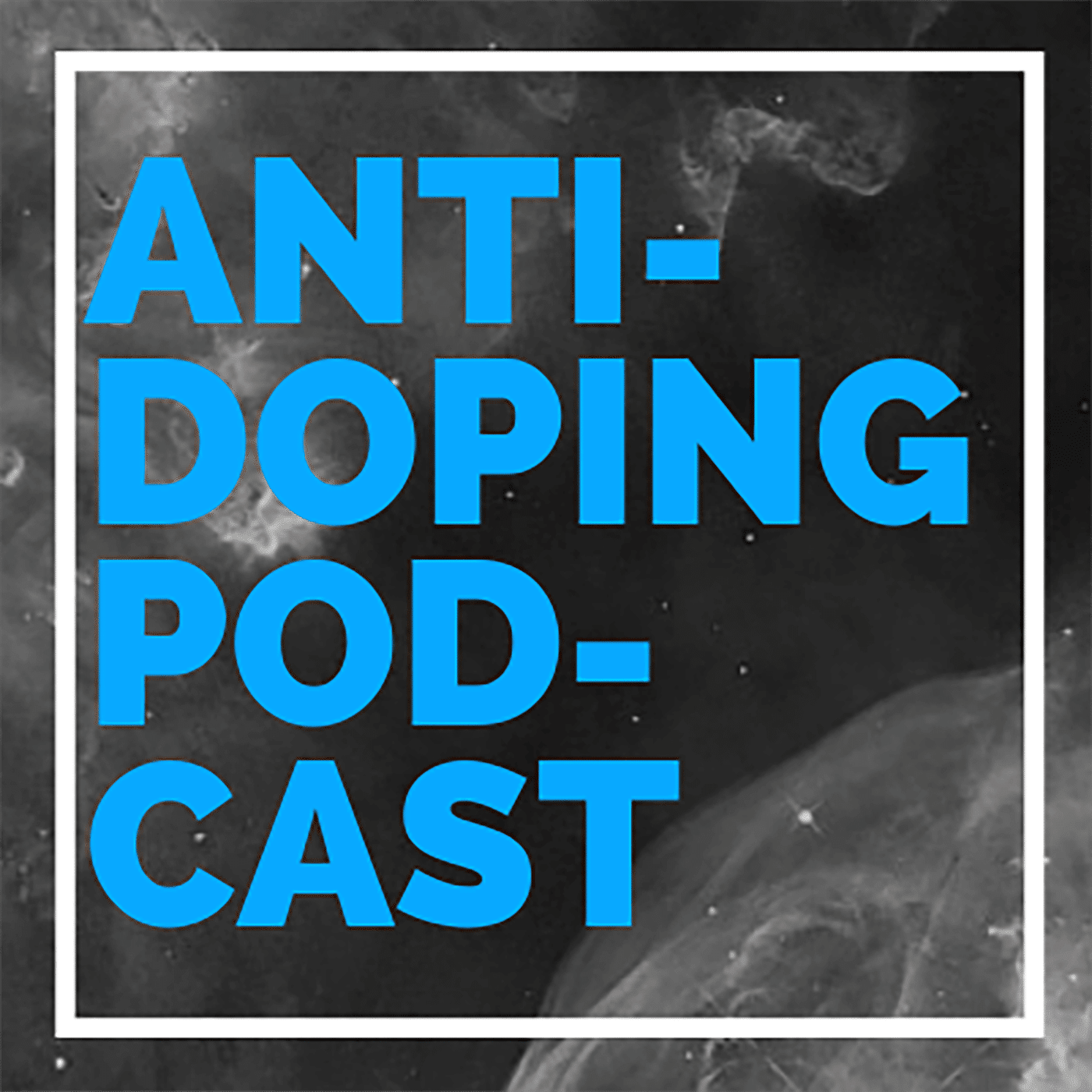
Dr. Mario Thevis is Vice President of Research, Professor, and Head of the Centre for Preventive Doping Research at the German Sport University of Cologne. He is also Director of the European Monitoring Center for Emerging Doping Agents, a forensic chemist, Editor-in-Chief of Drug Testing & Analysis, and a PCC scientist. He discusses challenges detecting microdosing of prohibited substances, new drug tests being developed using exhaled breath samples, recent breath testing field trials, and more.
22 – Doping Issues and Anti-Doping Programs in Horseracing – Tessa Muir
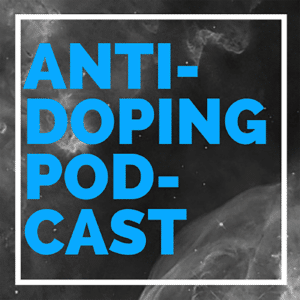
Dr. Tessa Muir, B.V.Sc., is the former Anti-Doping Manager at British Horseracing Authority. She is an equine veterinarian, a Veterinary Officer with the British Army, and a Regulatory Veterinarian at Racing Victoria. She discusses current doping issues, recent doping cases, and key anti-doping programs and strategies to detect, deter, and prevent doping in horseracing. Tessa also shares important similarities and differences between equine and human sports for anti-doping and other integrity concerns.
21 – Using Nanomaterials to Advance Anti-Doping Testing Methods – Nicolas Voelcker, PhD
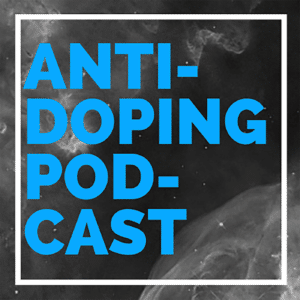
Dr. Nicolas Voelcker is Scientific Director of the Melbourne Centre for Nanofabrication, Professor at Monash University, and Science Leader at the CSIRO. He shares how applying his expertise in nanomaterials to anti-doping allowed him to work on exciting research projects and take advantage of great funding opportunities. He also describes the anti-doping testing applications of a porous silicon nanomaterial he works on, and how this material is used with mass spectrometry to detect prohibited substances.
20 – EPO Doping and the Development of Tests to Detect and Deter It – Steve Elliott, PhD
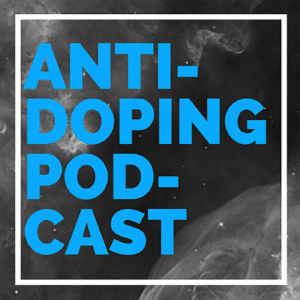
Dr. Steve Elliott is a former Scientific Executive Director at Amgen, an expert on the process of creating new red blood cells (i.e. erythropoiesis), and a champion of anti-doping. He dives into what erythropoietin (EPO) is, how it’s made in the body, the impacts of not having enough EPO, and how EPO abuse can enhance athletic performance. We also cover tests developed to detect EPO and recombinant EPO abuse, and the red flags scientists look for to determine if athletes have been doping with EPO.
19 – Sports Writer Shares Stories and Insights About Anti-Doping Reporting – Bonnie Ford
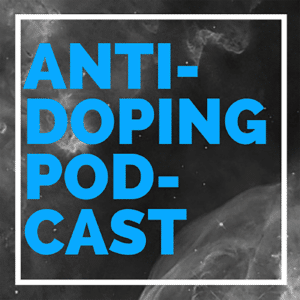
Bonnie Ford is a senior writer for ESPN.com who has over two decades of experience covering sports and anti-doping. She shares challenges associated with making anti-doping stories interesting and accessible for general audiences as well as the pressures and stresses of sports journalism. Bonnie also discusses guidelines for responsible journalism when covering sensitive anti-doping cases, potential pros and cons of making doping cases public, and the evolution of her anti-doping reporting over the years.
18 – Leading World Lacrosse and Championing Clean Sport – Jim Scherr
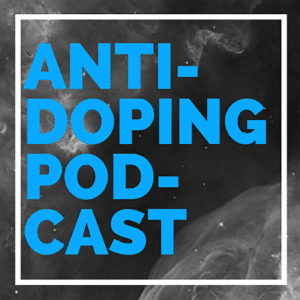
Jim Scherr is the former CEO of the United States Olympic Committee (USOC) and he is the inaugural CEO of World Lacrosse. In this interview, he talks about the history of the sport of lacrosse, current and long-term goals for World Lacrosse, lacrosse anti-doping and athlete education programs, anti-doping challenges associated with being a growing sport, his experiences as an Olympic and World Champion wrestler, his prior roles with USA Wrestling and the USOC, the evolution of anti-doping, and more.
17 – The Discovery and Development of Selective Androgen Receptor Modulators – Jim Dalton, PhD
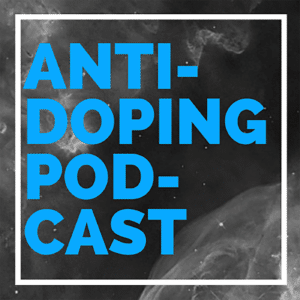
Dr. Jim Dalton is Dean and Professor of Pharmaceutical Sciences in the College of Pharmacy at the University of Michigan. He breaks down what exactly selective androgen receptor modulators (SARMs) are, how they work, and how they are being used for both therapeutic and doping purposes. He also talks about barriers to getting FDA approval of SARMs, issues with supplements containing SARM contaminants, and his experiences being on the PCC’s Scientific Advisory Board with other leading anti-doping scientists.
16 – Dried Blood Spots and Other Alternative Sampling Methods – Daniel Eichner, PhD
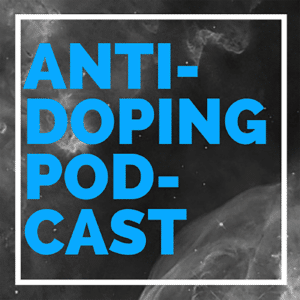
Dr. Daniel Eichner is President and Director of the Sports Medicine Research & Testing Laboratory (SMRTL) in Salt Lake City. He discusses the benefits and limitations of using dried blood spot sampling and sample collection via exhaled breath and oral fluids, as well as recent field trials with these technologies. He also shares his experiences running a WADA-accredited lab that does research and routine testing, developing new tests for biomarkers of doping, and current anti-doping research priorities.
15 – Life as a Doping Control Officer – Matt from Drug Free Sport International
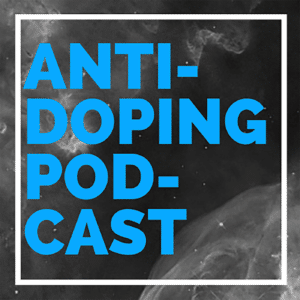
Matt is a Doping Control Officer (DCO) with Drug Free Sport international, and he shares a candid account of what it’s like to be a DCO. He discusses unexpected occurrences during doping control missions, the behind-the-scenes roles and responsibilities of DCOs working in the field, the rigorous training process required to become a DCO, the variety of challenges he faces in collecting and protecting the integrity of samples, improvements in doping control processes and technology over time, and more!
14 – Anti-Doping Psychology and Addressing Misconduct in Sport – Dr. Kelsey Erickson
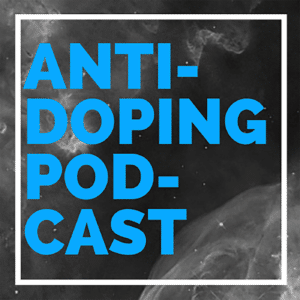
Dr. Kelsey Erickson is the SafeSport Director at USA Cycling and an expert on the psychology of doping and whistleblowing. She discusses the process of reporting misconduct in sport through the SafeSport program, evidence-based doping education, how the people and the environment surrounding athletes impact athletes’ behavior, the bystander effect, using research to inform policies and platforms for whistleblowing, and challenges in translating academic research to applications in the real world.
13 – Whistleblowers Who Helped Reveal Doping in Russian Sport – Yulia Stepanova and Vitaly Stepanov
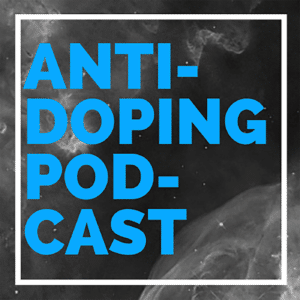
Yuliya Stepanova is an elite runner who specializes in the 800m track event, and Vitaly Stepanov is a former employee of the Russian Anti-Doping Agency. Both served as whistleblowers helping to expose doping and related issues in sport in Russia. They discuss their firsthand experiences being an athlete and working within a system that supported doping in sport, the challenges and consequences of being whistleblowers, the impacts of their actions, what they wish they had done differently, and more.
12 – Advances in Blood Doping Detection and Analysis – Nikolai Nordsborg, PhD
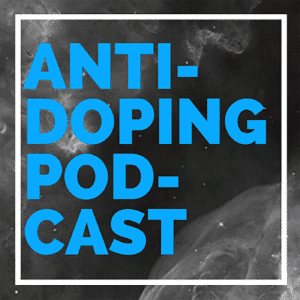
Nikolai is Associate Professor and Head of the Integrative Physiology Section within the Department of Nutrition, Exercise and Sports at the University of Copenhagen. He shares his cutting-edge research on autologous blood transfusion that shows that even small amounts of blood (i.e. 1/2 bag) enhance performance. He also discusses biomarkers for blood doping, dried blood spot tests for testosterone esters, and the importance of developing high-performance environments to solve big problems in anti-doping.
11 – Banned Substance Scandals in Swimming and Sports Media Issues – Tracey Holmes
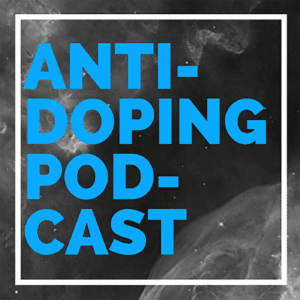
Tracey Holmes is a senior reporter/presenter at the Australian Broadcast Corporation’s News Channel, and she presents a weekly program called The Ticket that gives a deep dive into various sports topics. In this episode, she shares the facts surrounding the clash between swimmers Mack Horton and Sun Yang, doping allegations against Australian swimmer Shayna Jack, issues in sport governance, challenges getting people to share stories with the media, challenges with the anti-doping judicial system, and more.
10 – Corruption, Betting, Match Fixing, and Doping in Esports – Ian Smith and Michele Verroken

Ian Smith is Esports Integrity Commissioner at The Esports Integrity Coalition and owner of Sports Integrity Matters. Michele Verroken is Founding Director of Sporting Integrity and Director and Anti-Doping Adviser at The Esports Integrity Coalition. They cover issues related to corruption, betting, match fixing, and doping in esports (e.g. Adderall and marijuana). We also discuss differences in anti-doping programs for esports, innovations in esports drug testing, and common misconceptions about esports.
09 – UFC and USADA Partner to Protect Clean Competition – Adam Woullard
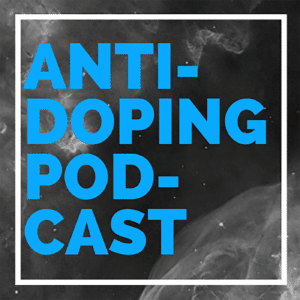
Adam Woullard is a leading sports communication and PR expert, as well as the Director of Communications for the U.S. Anti-Doping Agency (USADA). Adam shares how USADA is working with the Ultimate Fighting Championship (UFC) to administer anti-doping programs and ensure clean competition. He also discusses the recent expansion of the UFC’s anti-doping program, how he got involved in the anti-doping movement, and current challenges in keeping up with advances in anti-doping science and doping methods.
08 – Anti-Doping and the Fight for Olympic Gold in Cross-Country Skiing – Beckie Scott

Beckie Scott is Canada’s most decorated cross-country skier, CEO of the sport for development organization Spirit North, and Chair of the World Anti-Doping Agency (WADA) Athlete Committee. In this episode, Beckie talks about the early experiences that sparked her passion for cross-country skiing, being upgraded from a bronze to a gold Olympic medal due to doping competitors, the WADA Anti-Doping Charter of Athlete Rights, and her work to engage and inspire indigenous youth and communities through sport.
07 – Athlete Rights and the Formation of Global Athlete – Rob Koehler

Rob Koehler is currently Director General of a new organization called Global Athlete, and he formerly served as the World Anti-Doping Agency Deputy Director General. He talks about how Global Athlete is working to protect athlete rights, the importance of including athletes in conversations about sports policy, the process of establishing a global network of anti-doping organizations, and how the anti-doping community can transition from a reactive to a proactive approach to addressing issues.
06 – Anti-Doping Science and Programs at USADA – Matthew Fedoruk, PhD
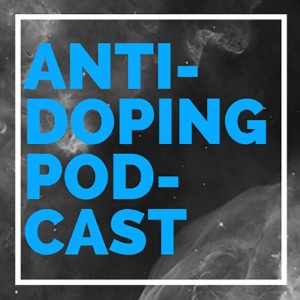
Dr. Matt Fedoruk is Chief Science Officer at the U.S. Anti-Doping Agency (USADA). In this episode, he talks about the events leading up to the formation of USADA, common misconceptions about evidence in anti-doping rule violation cases, building an accredited anti-doping testing laboratory in Vancouver for the 2010 Winter Olympics and Paralympics, key anti-doping programs at USADA, challenges that accompany advances in anti-doping technology, and improving the science on deterring athletes from doping.
05 – Sports Communication and the Emergence of the Athlete Voice – Ben Nichols

Ben Nichols is a leading global sports communication expert and Founder of Ben Nichols Communications. In this interview, he talks about the emergence of the athlete voice, challenges in navigating the complexities of anti-doping cases in sports communication, the importance of face-to-face communication, and his experiences working with a wide variety of sport leagues, sponsors, and anti-doping organizations over the years.
04 – Challenges with Corruption and Doping in Sport – David Howman

David Howman is currently Chair of the Board of Directors at Athletics Integrity Unit, and he is the former Director General of the World Anti-Doping Agency or WADA. He has also been named Companion of the New Zealand Order of Merit for his services to sport. In this episode, David talks about the formation of the Athletics Integrity Unit, corruption and doping issues in sport, his experiences being a leader at WADA, and the benefits and challenges of the global nature of anti-doping.
03 – World’s Fastest Female Marathon Runner Champions Anti-Doping – Paula Radcliffe

Paula Radcliffe is an accomplished long-distance runner, and among her many achievements, she holds the distinction of being the Women’s World Marathon Record holder for over 15 years. Paula shares some of her experiences as an elite athlete related to undergoing anti-doping testing, recovering from multiple injuries to continue competing, and becoming a champion of the anti-doping movement.
02 – Major League Baseball Drug, Health, and Safety Programs – Jon Coyles

Jon Coyles is Vice President of Drug, Health, and Safety Programs at Major League Baseball (MLB). In this interview, he discusses the history of anti-doping efforts at MLB, describes current MLB anti-doping programs, and brings to light important issues related to contamination in over-the-counter vitamins and supplements that impact athletes.
01 – Using Mass Spectrometry to Analyze Samples and Detect Doping – David Cowan, PhD

Dr. David Cowan is Professor Emeritus in the Department of Environmental, Analytical, and Forensic Science at King’s College London. He is also an Officer of the Most Excellent Order of the British Empire for services to anti-doping science, as well as a world-renowned expert on drug detection and anti-doping. David discusses current research projects, real-world applications of his anti-doping research, and some of the major challenges in the field of anti-doping.